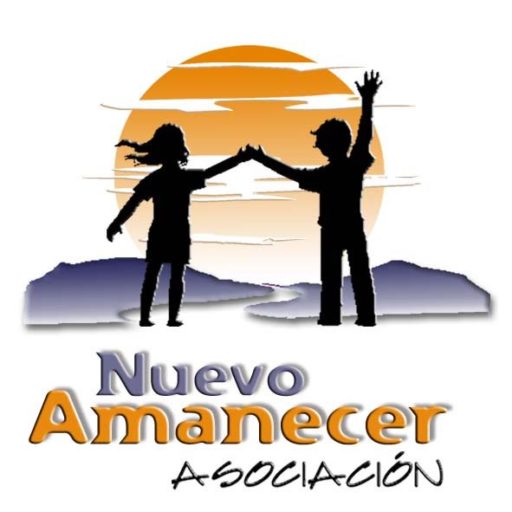Scholastic Education in Honduras
In Honduras, income improves with each level of education. Impoverished families are not usually able to afford a good education, and thus it is very difficult to break the vicious circle of poverty.
Although there has been some progress in the last few years, general education in Honduras is still quite poor. The level of educational quality, enrollment rates, infrastructure and teaching aids is very low. This affects the education of the children negatively. In most larger villages, there is a public elementary school. But quite often, the teachers are inadequately trained and unmotivated, and, therefore, many children are not able to properly do arithmetic, read or write, even after completion of Grade 9.
In Honduras, the low level of education is considered to be one of the main obstacles in the fight against poverty. The improvement of the education system is thus crucial for the people.
There are numerous high-quality private schools in Honduras. Unfortunately, due to their elevated tuition, these private institutions are usually not accessible to children from low-income families.
Scholastic Education in La Venta
Currently, we are offering educational opportunities for about 700 children and young adults at our school. Our educational system contains the following grades:
Preschool, over the age of 4 years (Kinder Bilingüe)
Bilingual English/Spanish
1 school year, half-day
Kindergarten, over the age of 5 years (Preparatoria Bilingüe)
Bilingual English/Spanish
1 school year, all day
Elementary School, over the age of 6 years (Primaria Bilingüe)
Bilingual English/Spanish
Grade 1 to 6, all day
Middle School, formal scholastic education (Colegio Bilingüe)
Bilingual English/Spanish
Grade 7 to 9, all day
Middle School, formal scholastic education (Colegio)
Monolingual Spanish
Grade 7 to 9, all day
Middle School, informal scholastic education (Educatodos)
Monolingual Spanish
Grade 7 to 9, all day
High School (Bachillerato)
Monolingual Spanish
Grade 10 to 11, all day
The Bachillerato diploma grants admission to universities in Honduras.
In addition to a high-quality education, we also attach great importance to the personal development of our students. With appropriate activities during and outside classes, we enhance the often poor self-esteem, the sense of reality, and the initiative of the young. Sharpened social skills, self-esteem and motivation are not only an advantage for daily life; they also improve opportunities on the job market. Furthermore, the young learn to reasonably deal with our current values of freedom and consumption.
Our efforts are not only directed at the students; we also involve their whole families with monthly parent-teacher conferences and in individual discussions. When problems arise, teachers and social workers also directly contact the parents. By involving the whole family, we promote a cohesive family unit and prevent family disintegration. Moreover, it is important to see the young students as probable future parents and prepare them for this task too.
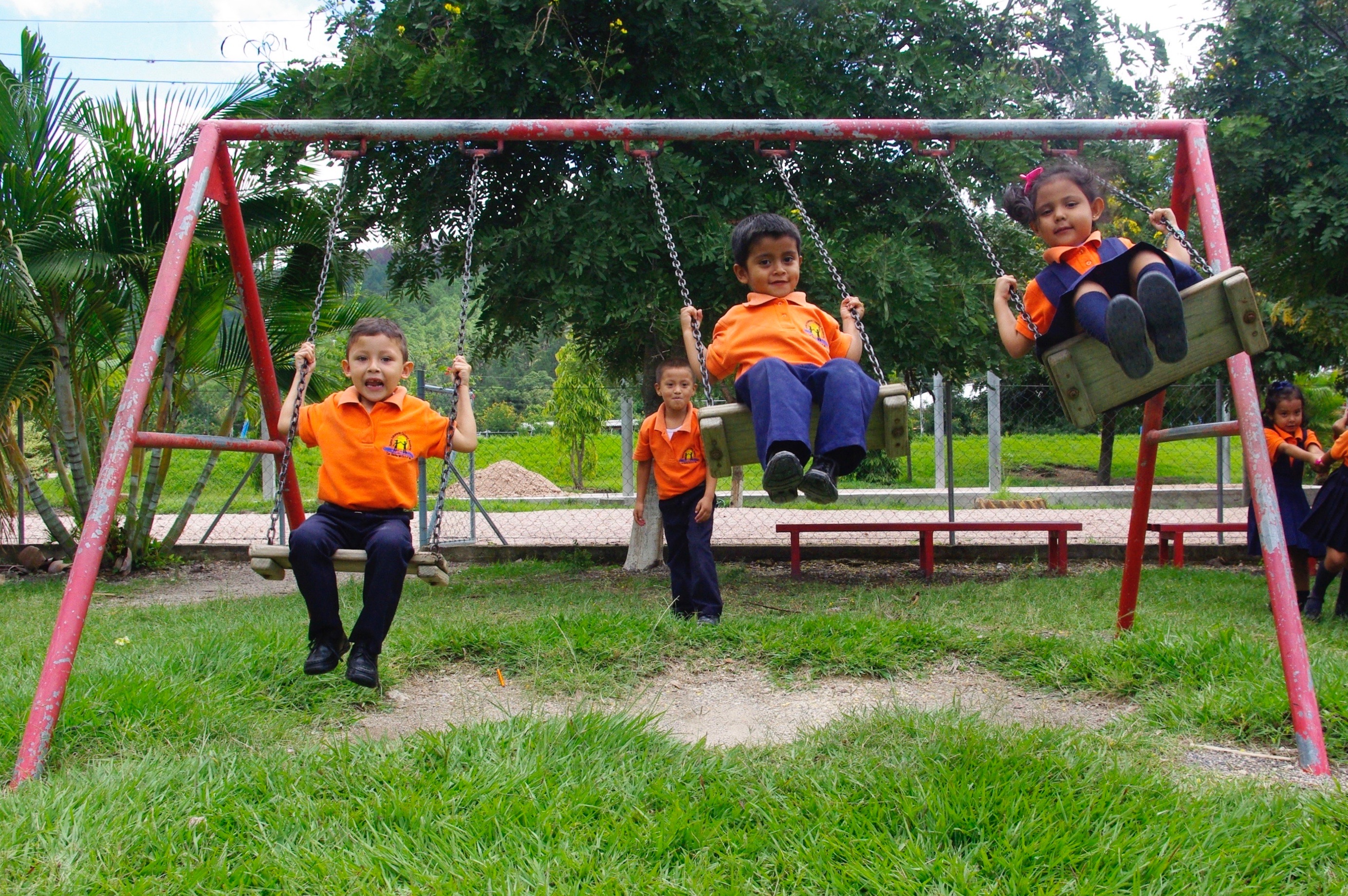
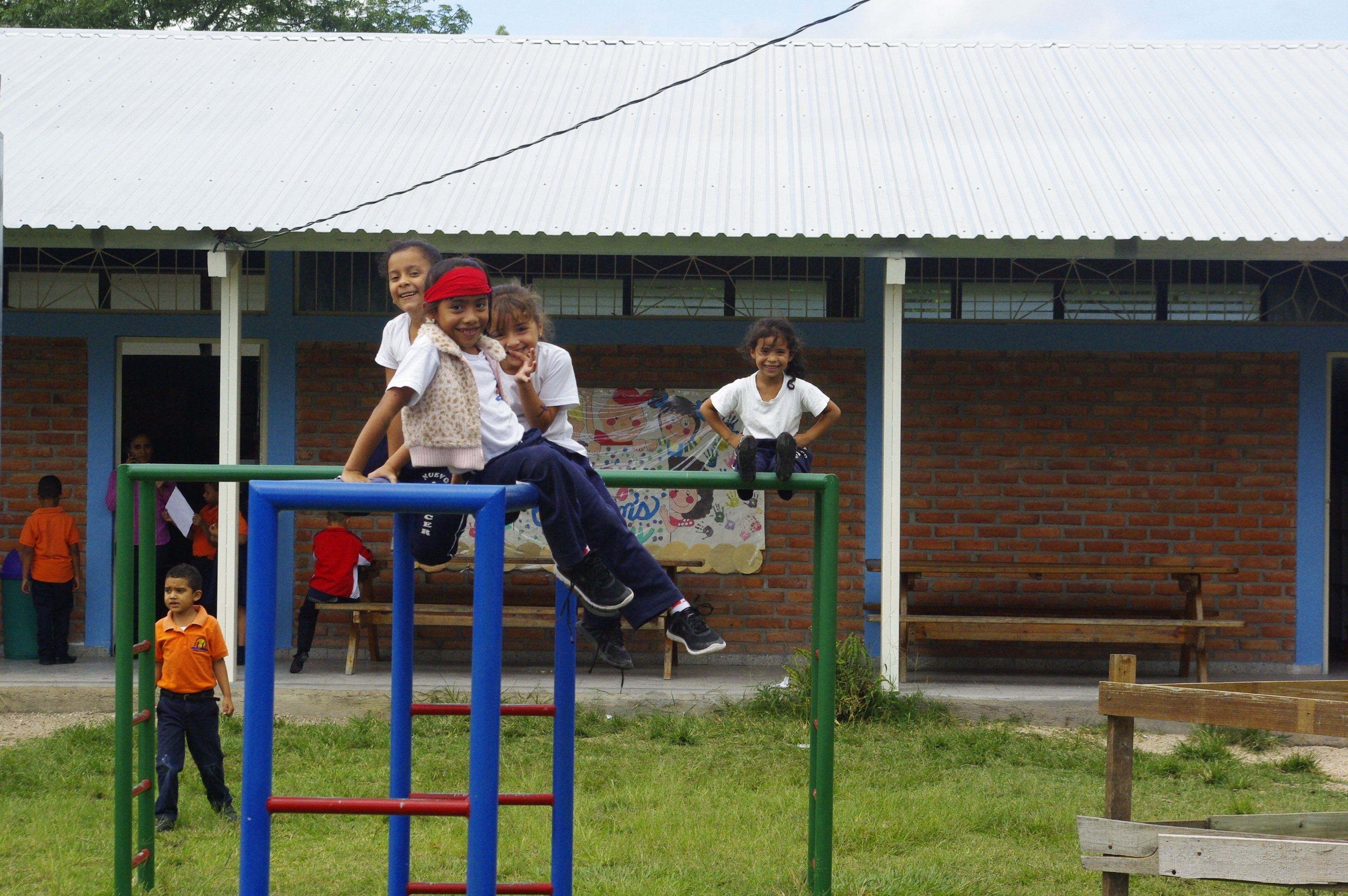
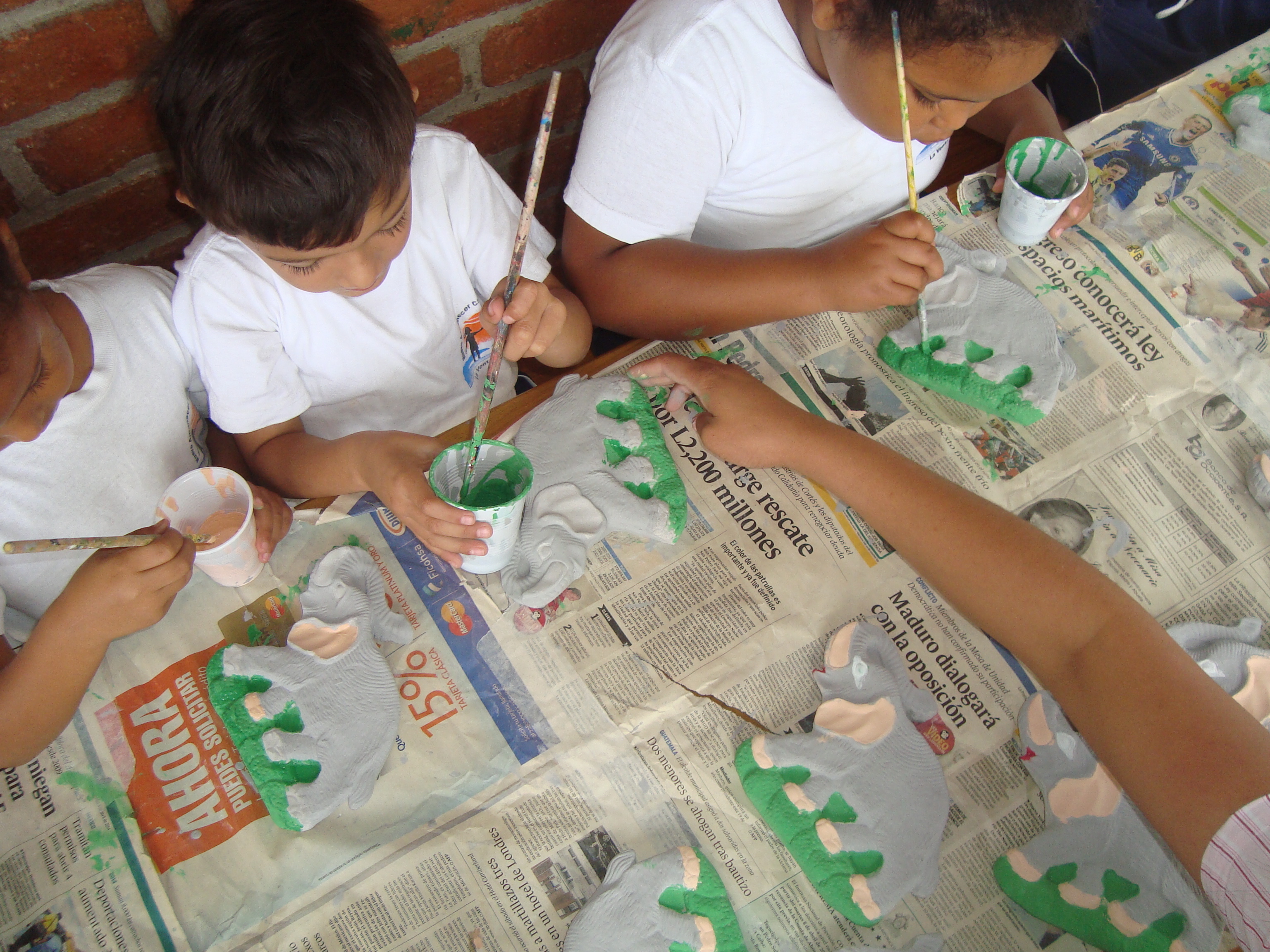
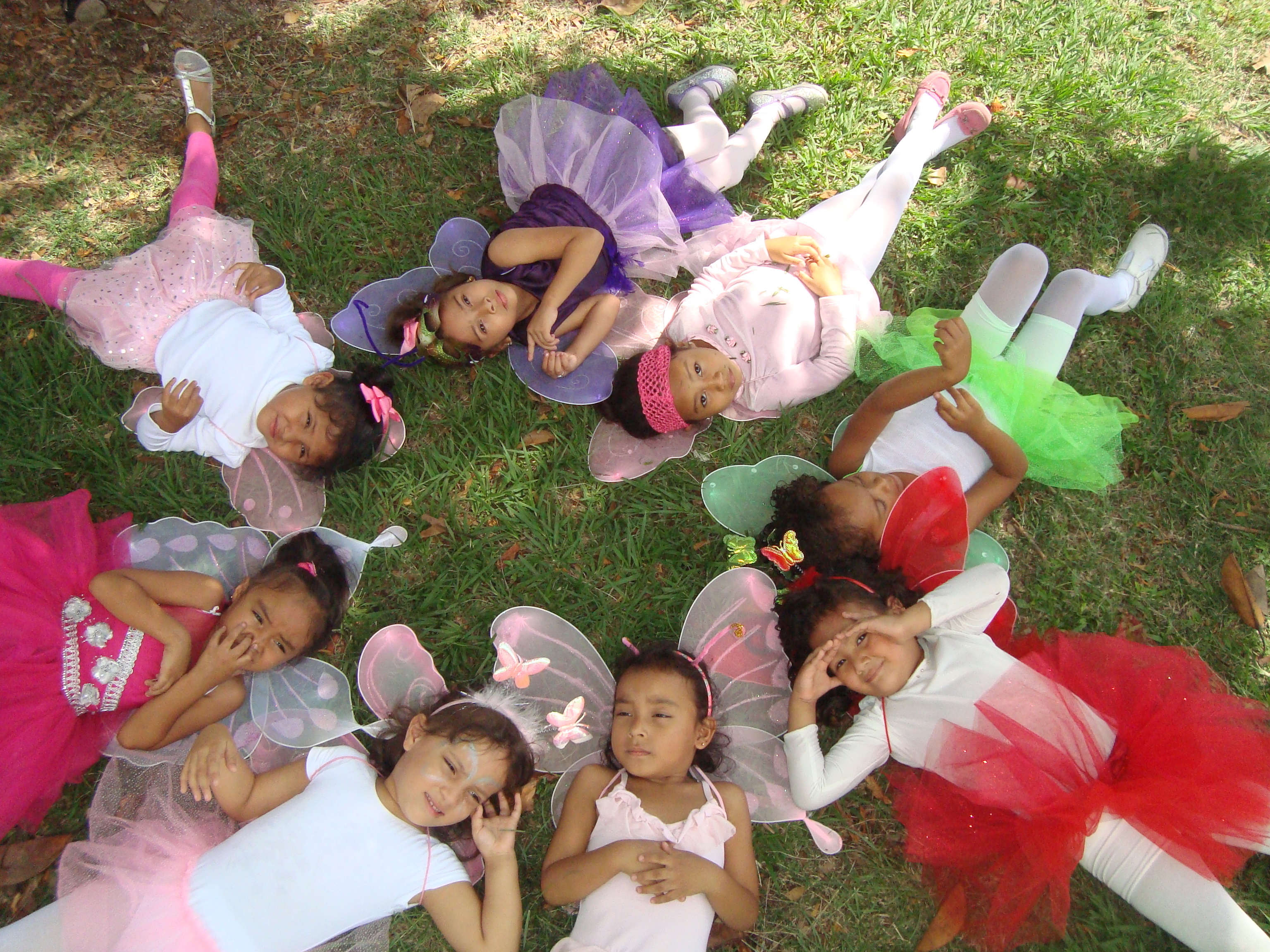
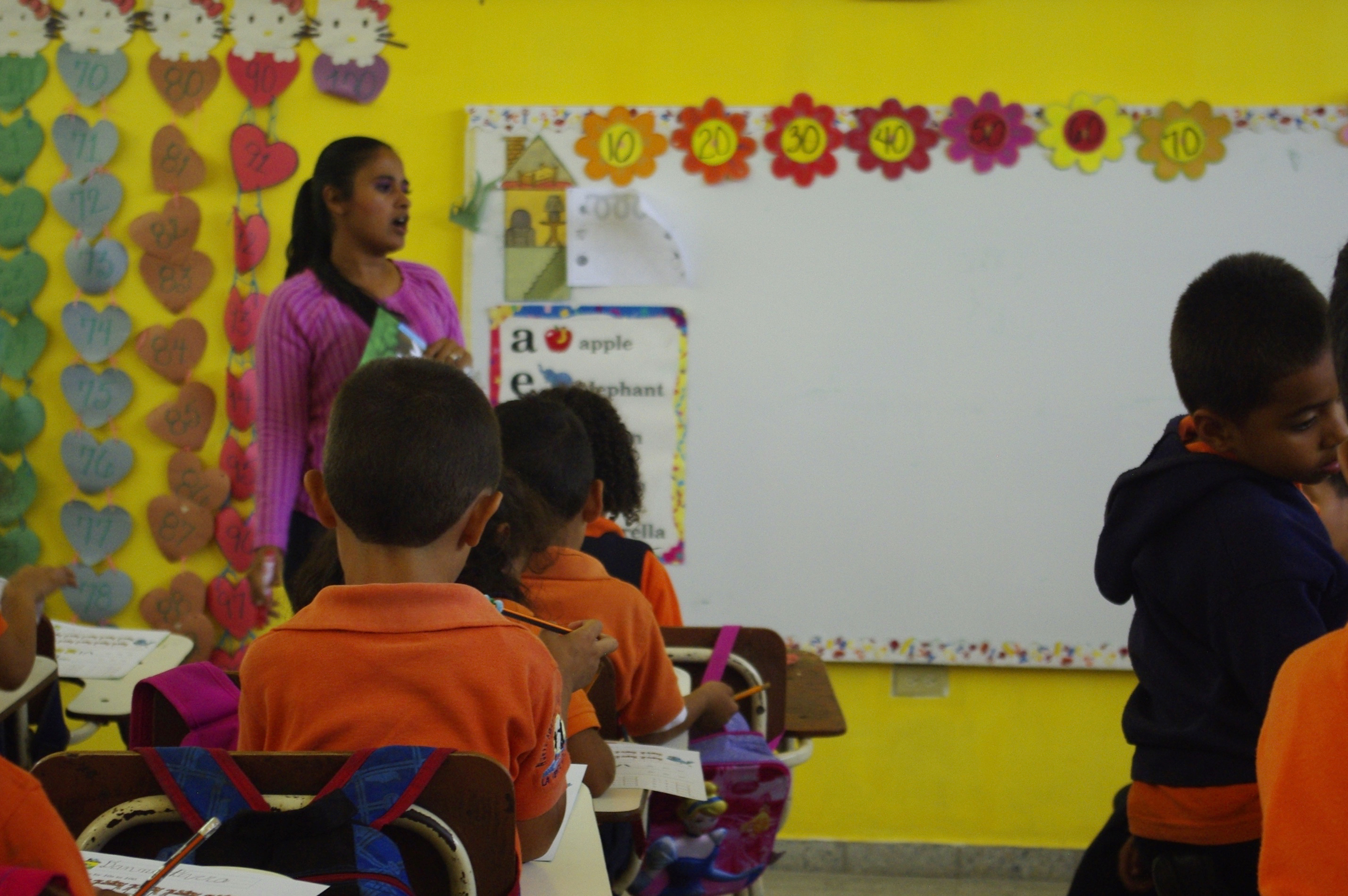
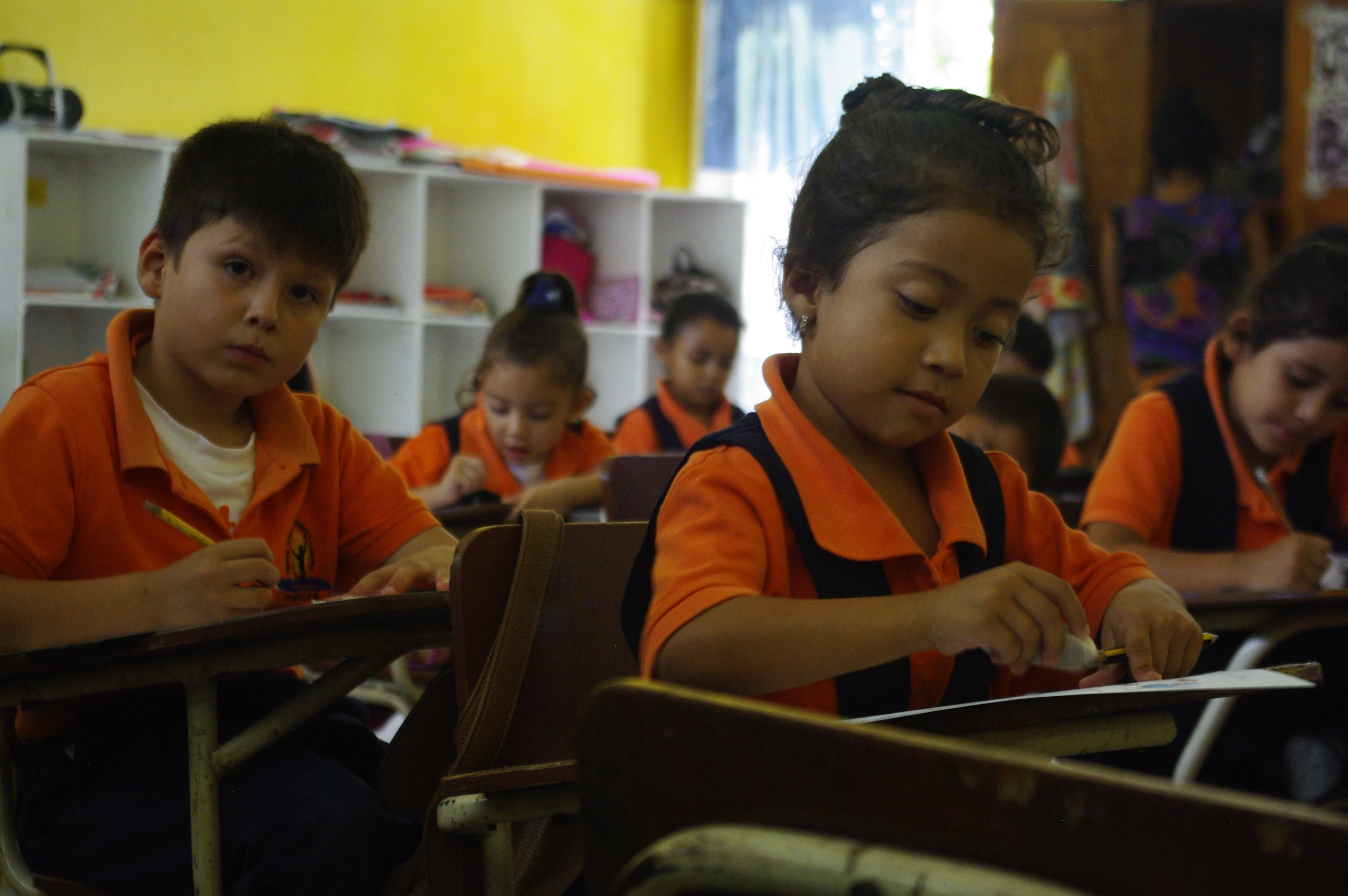
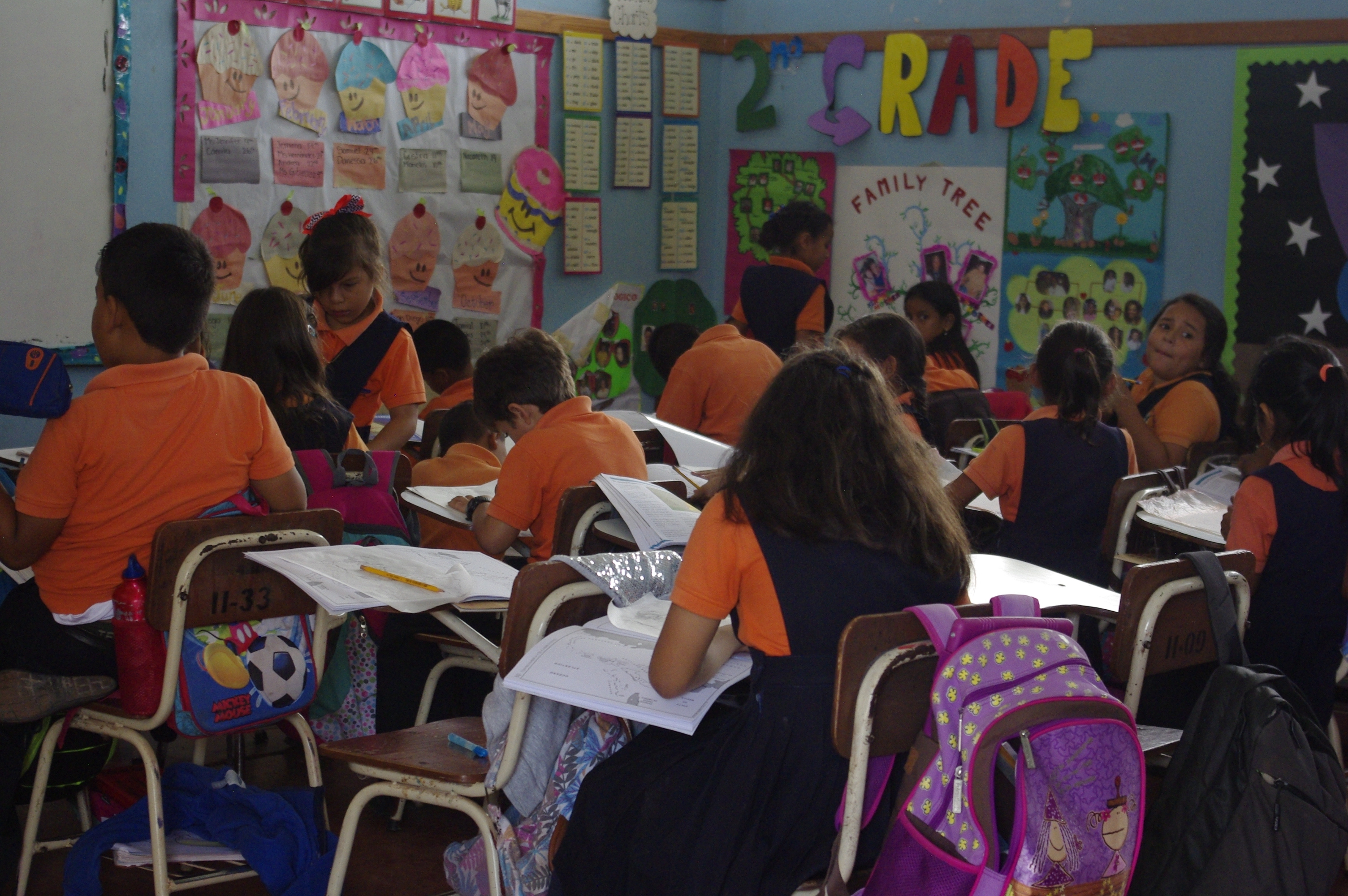
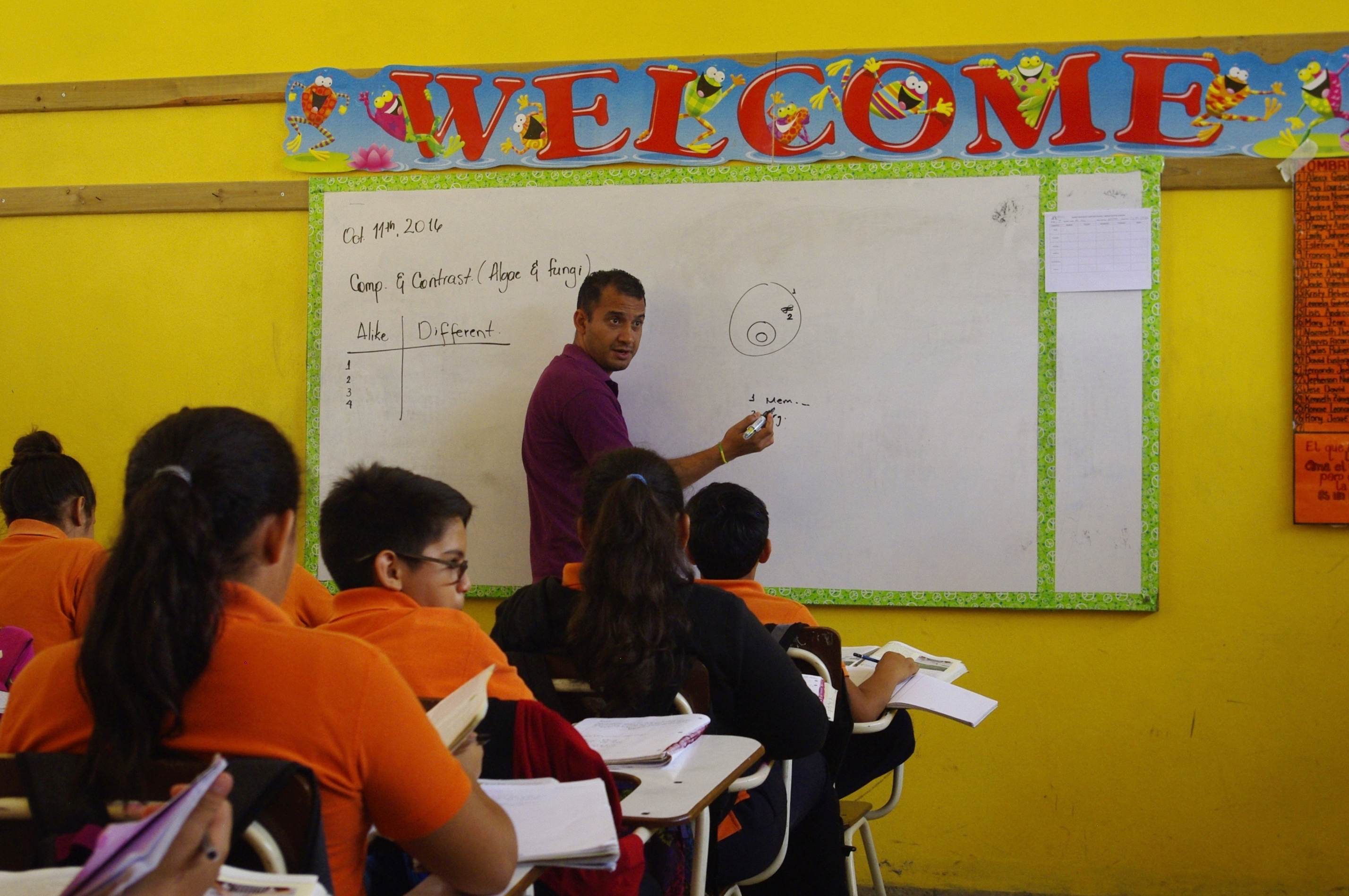
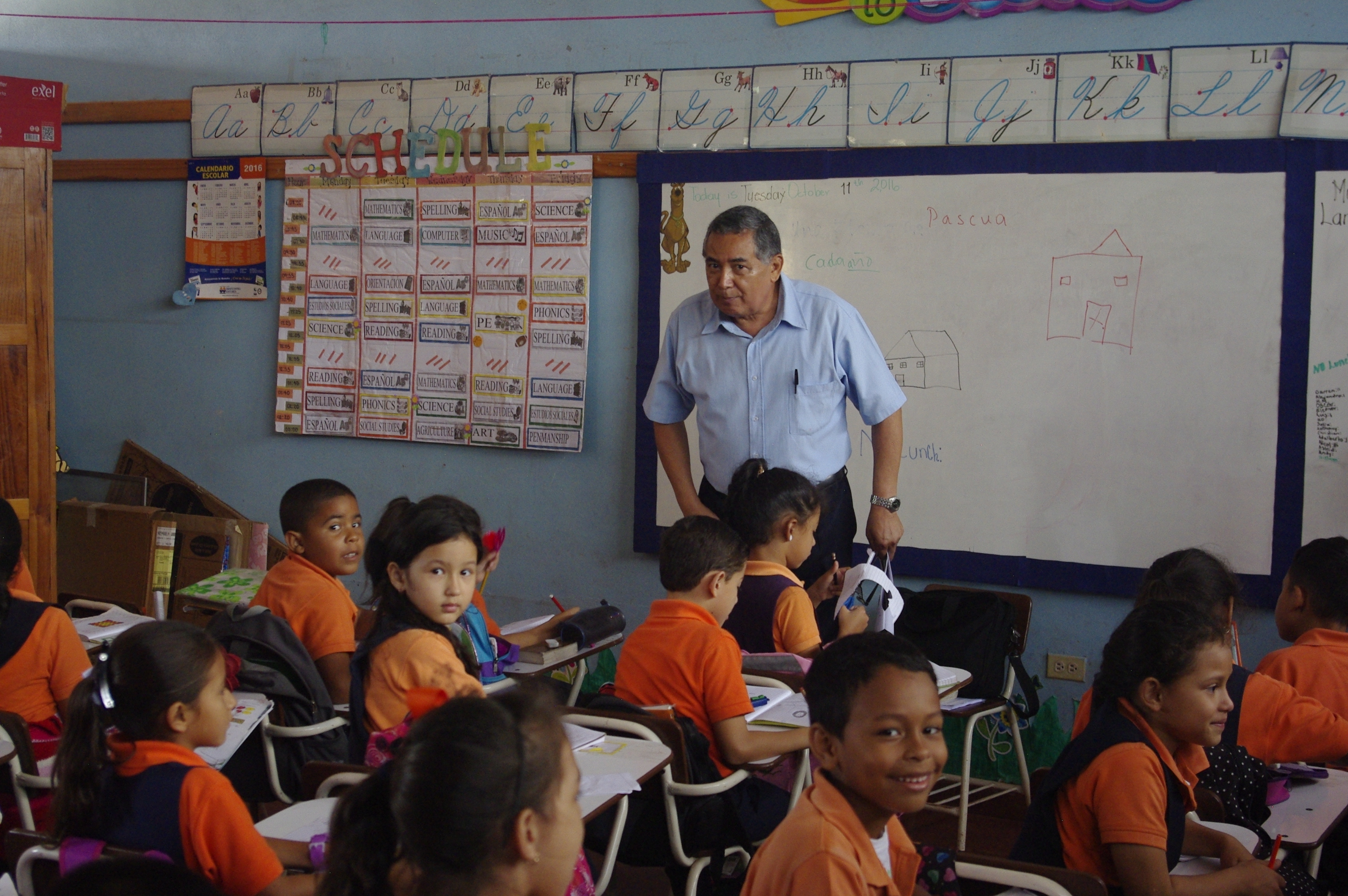
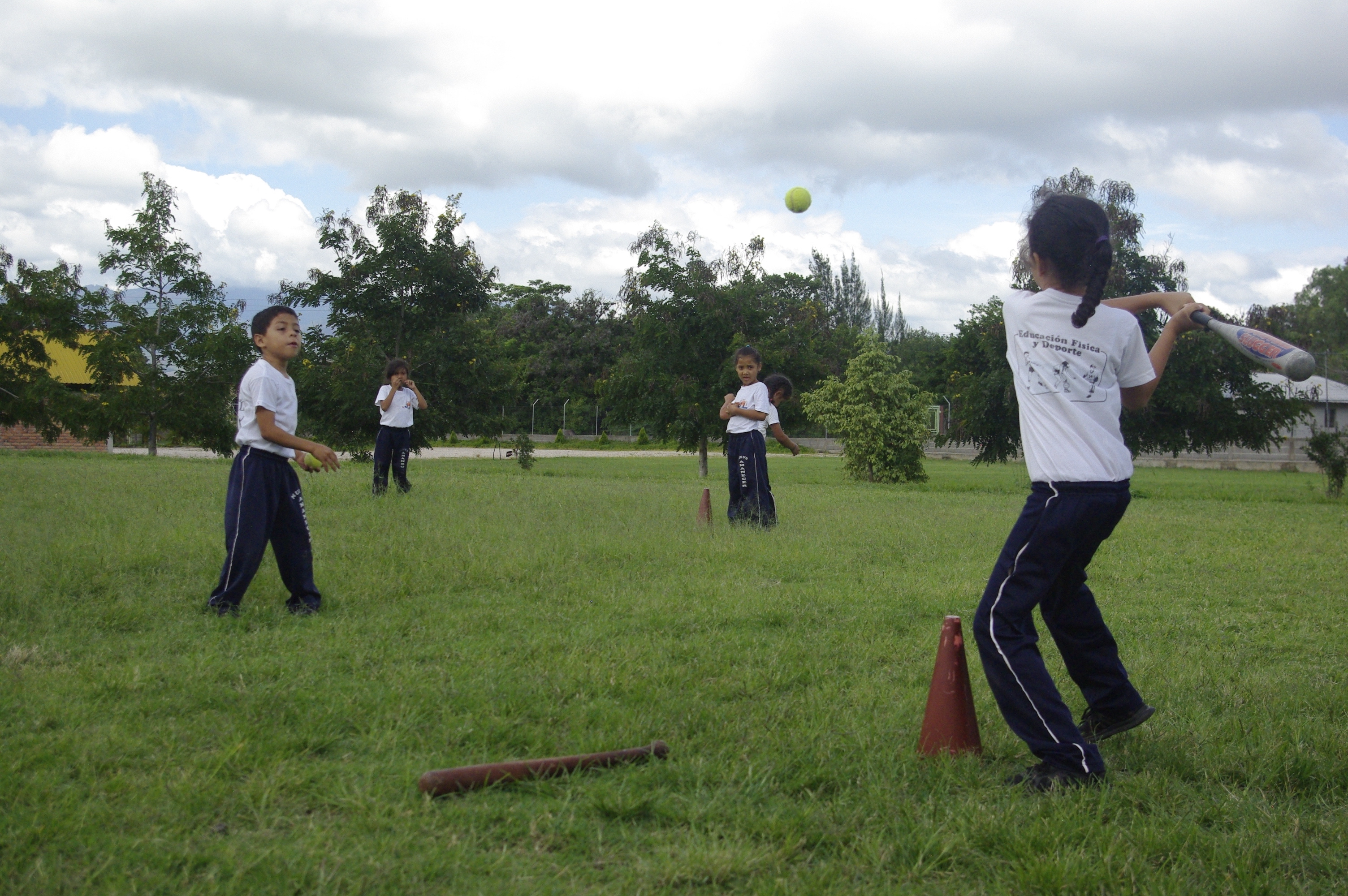
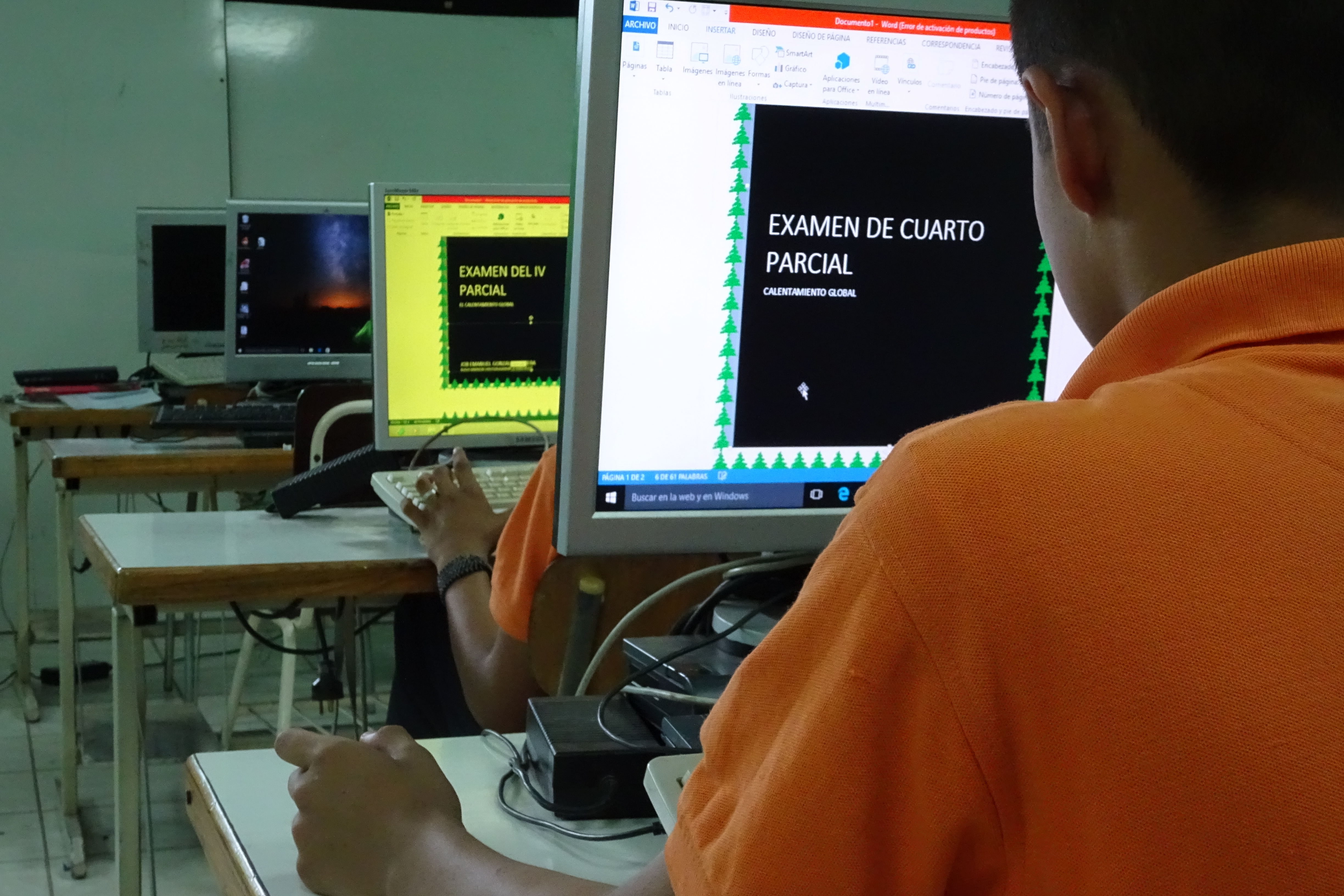
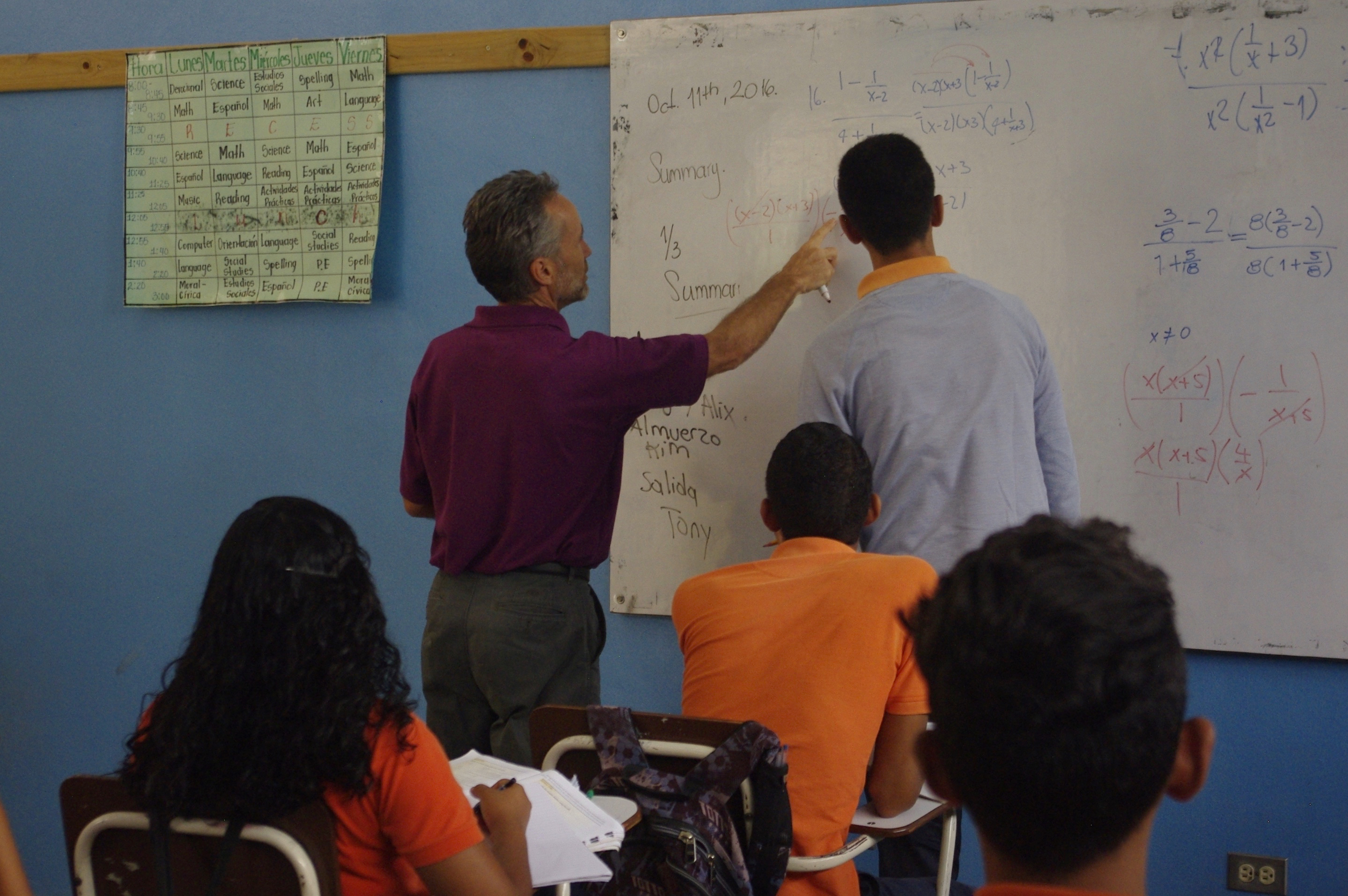
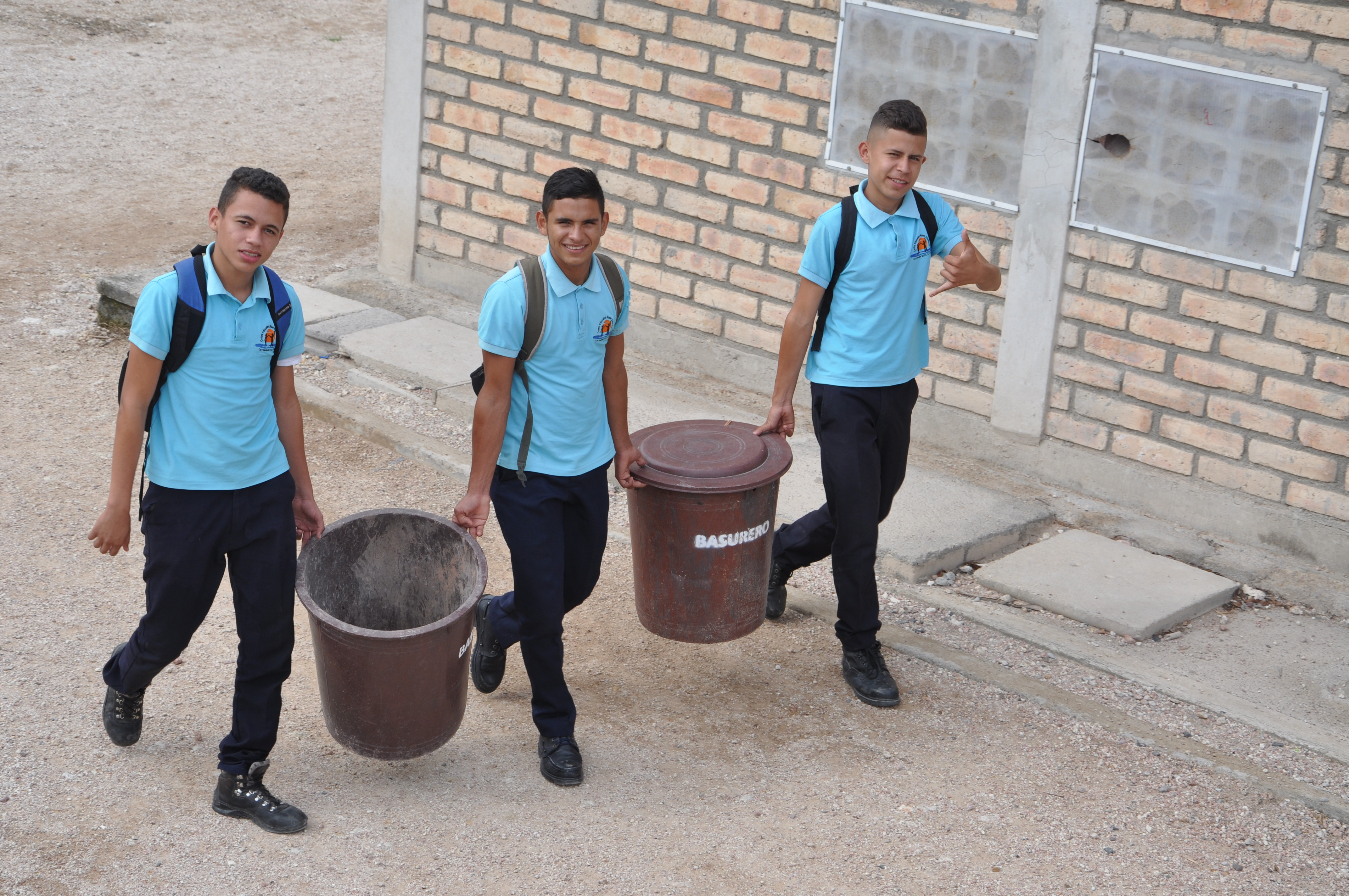
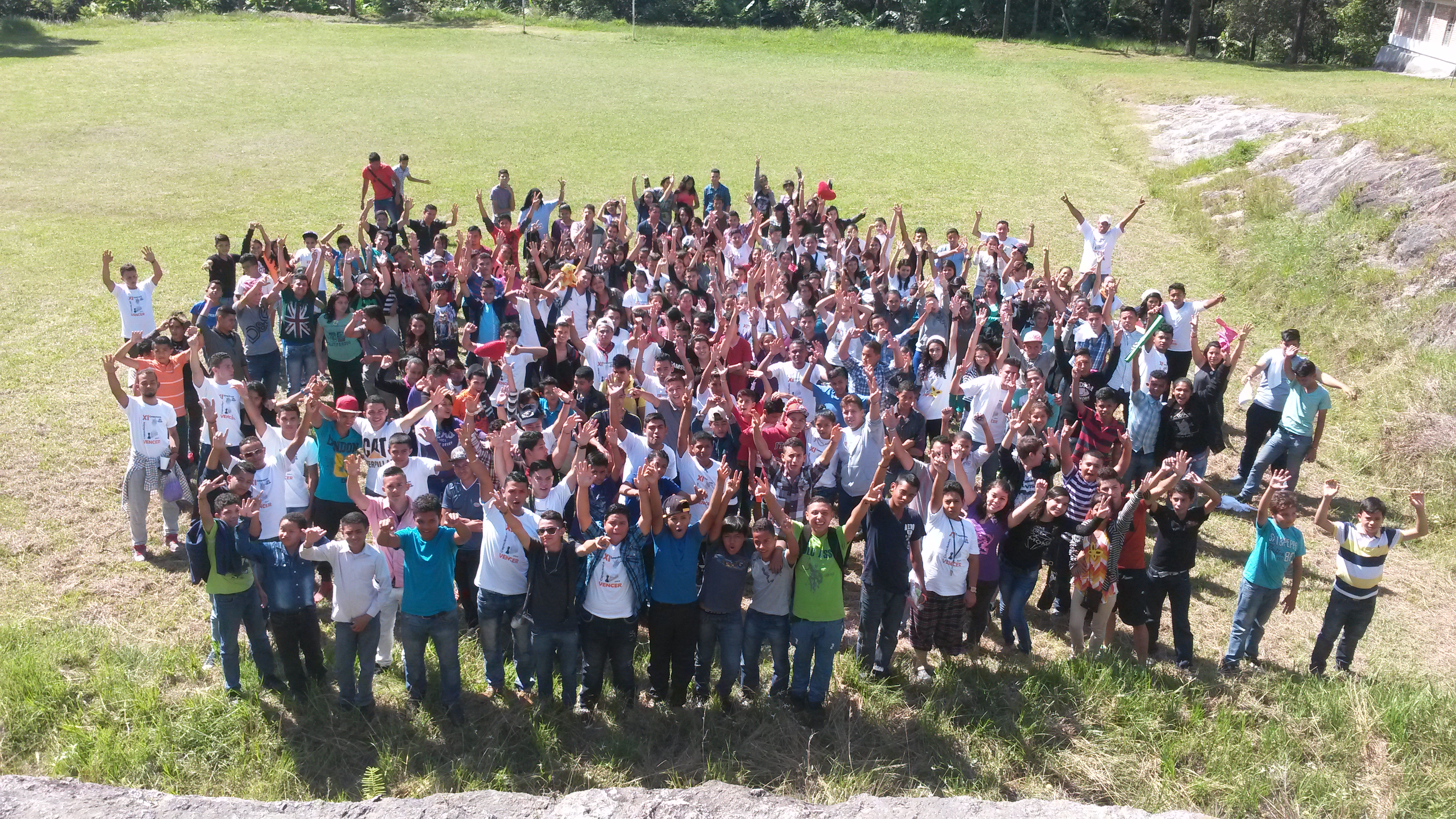
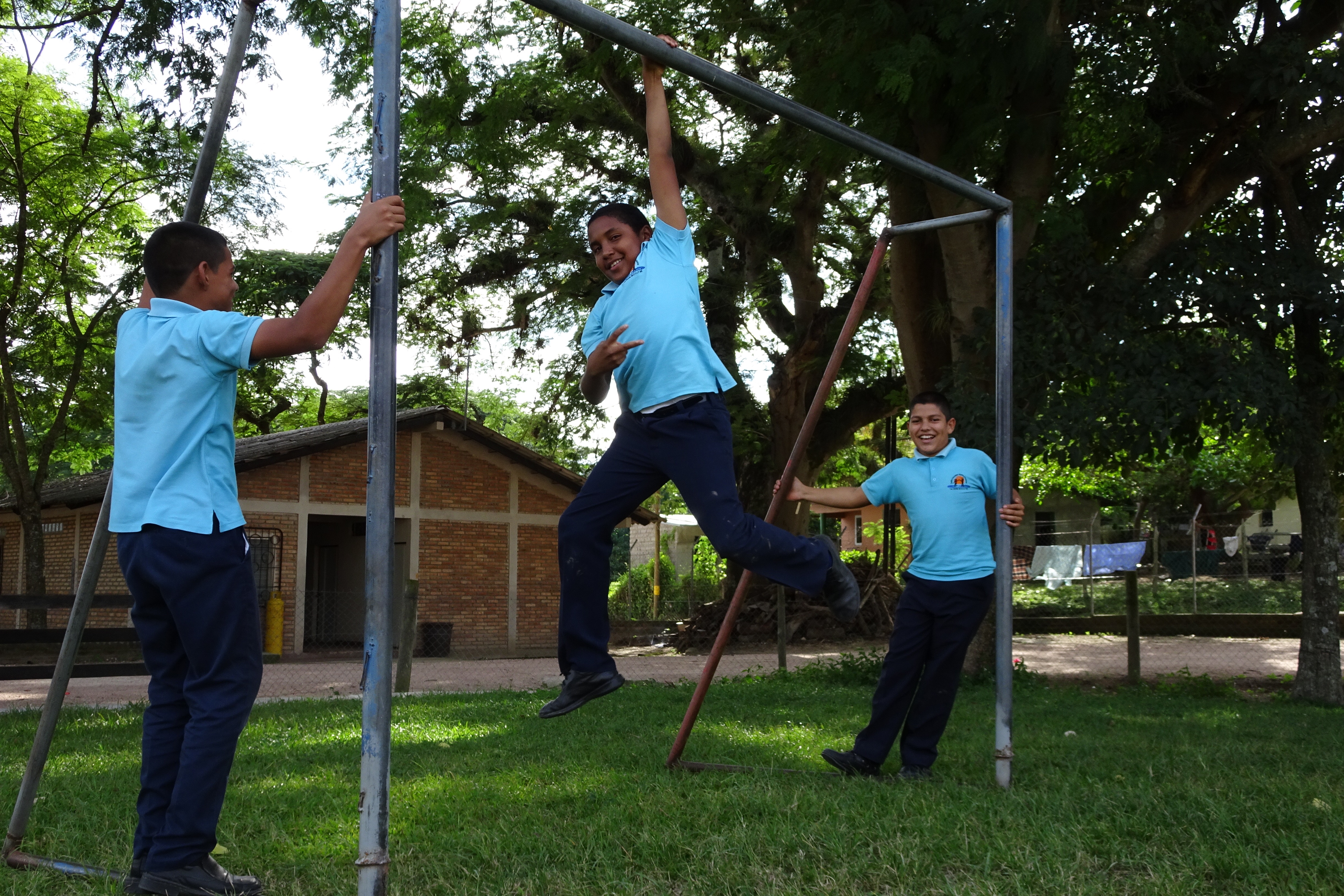
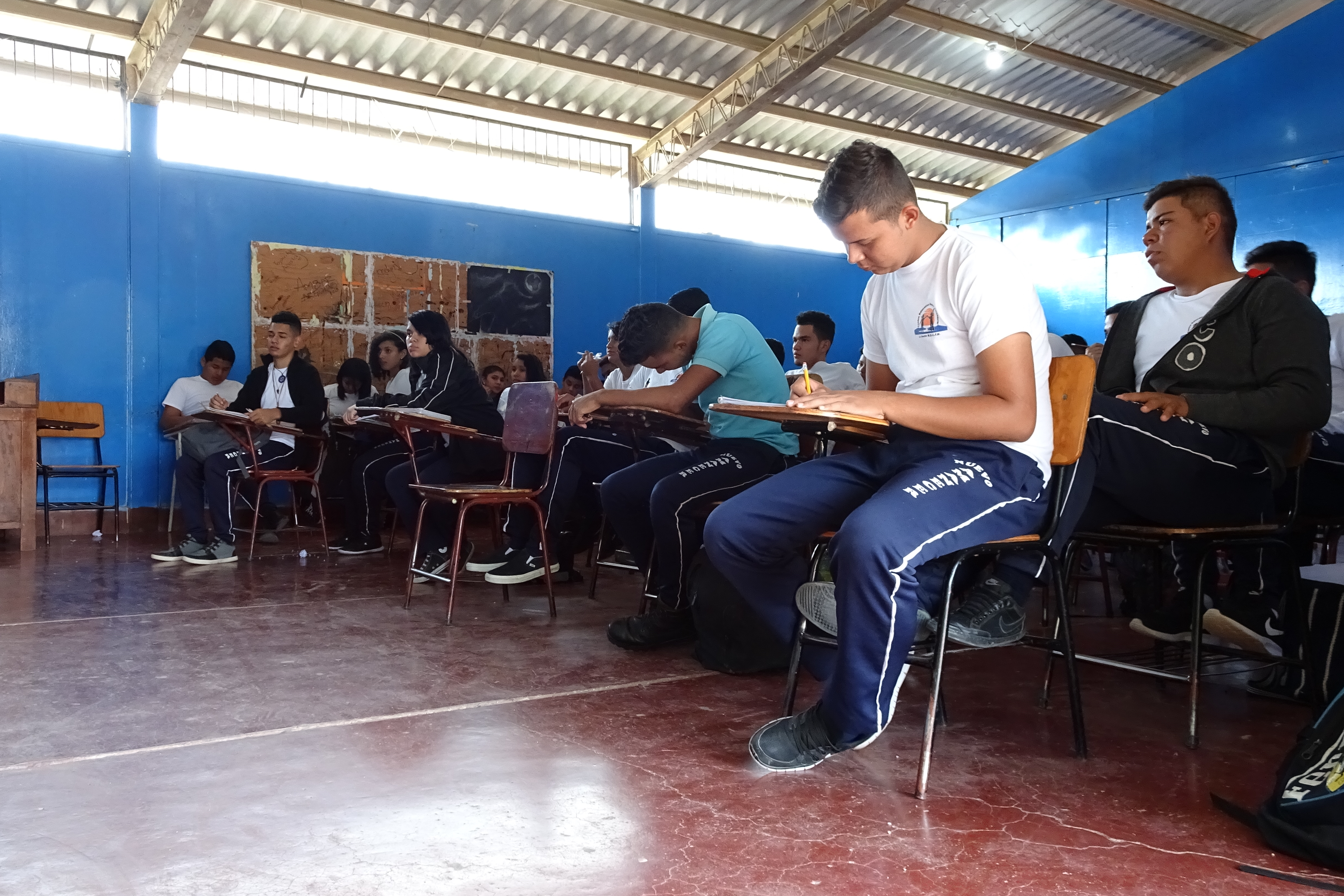
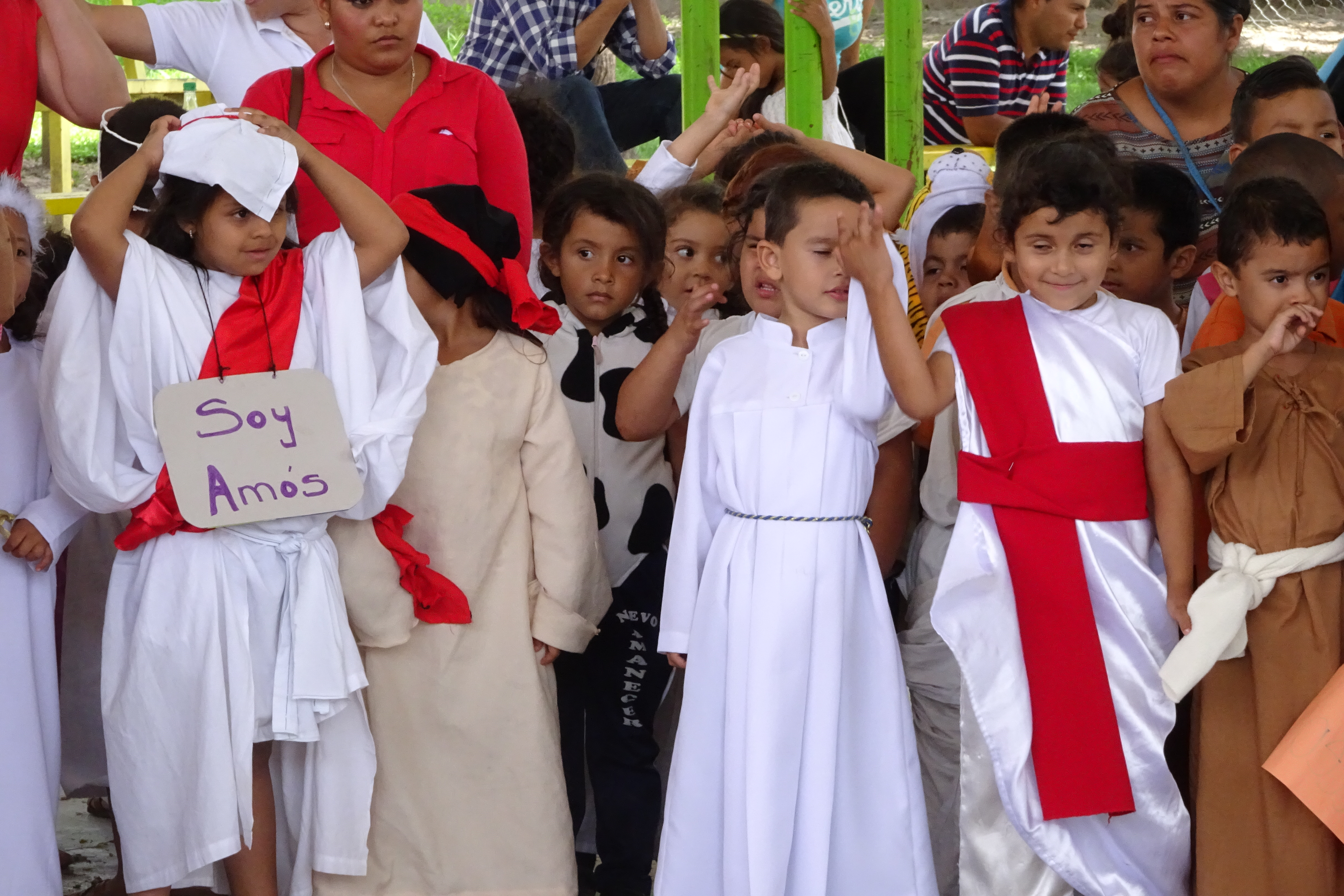
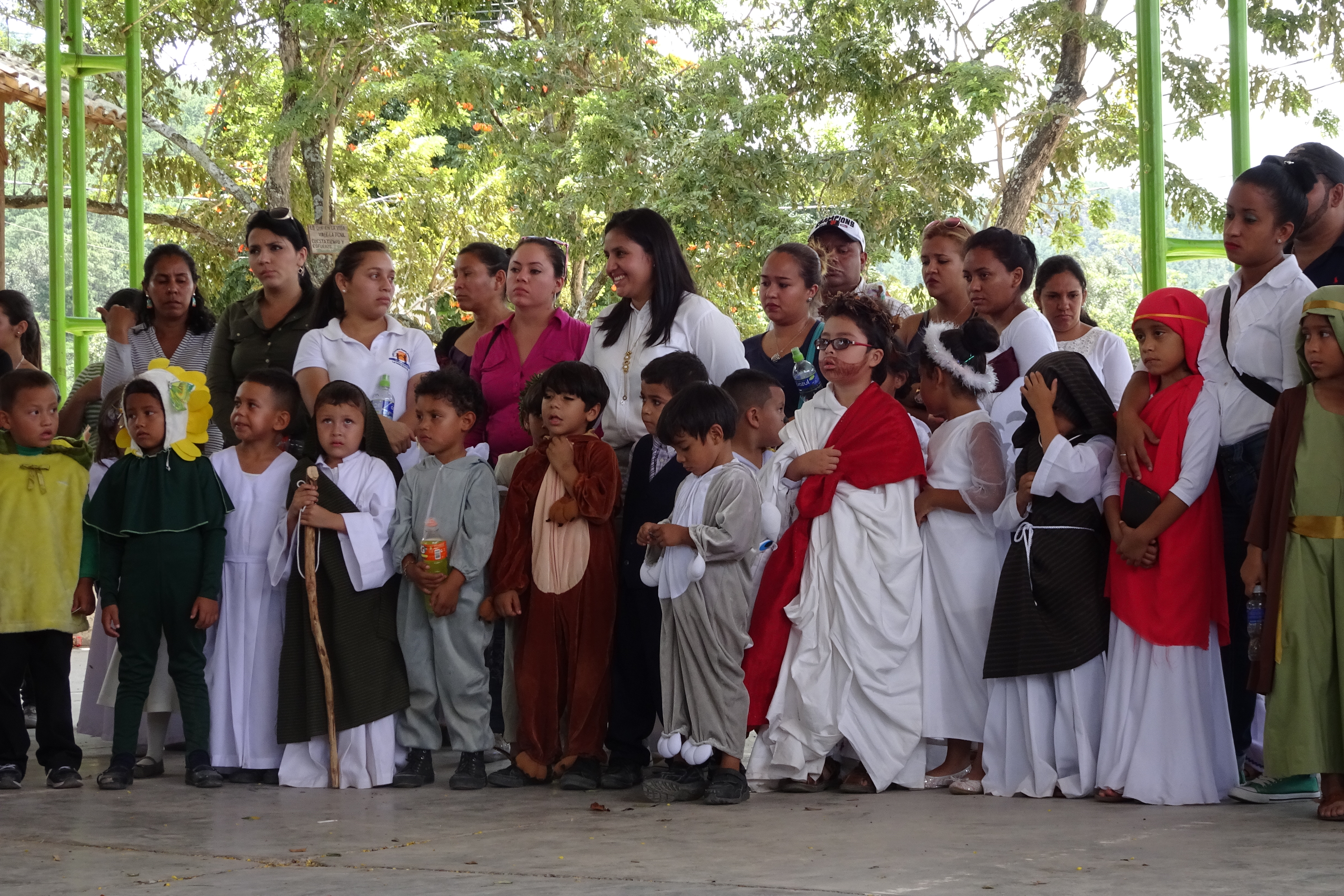
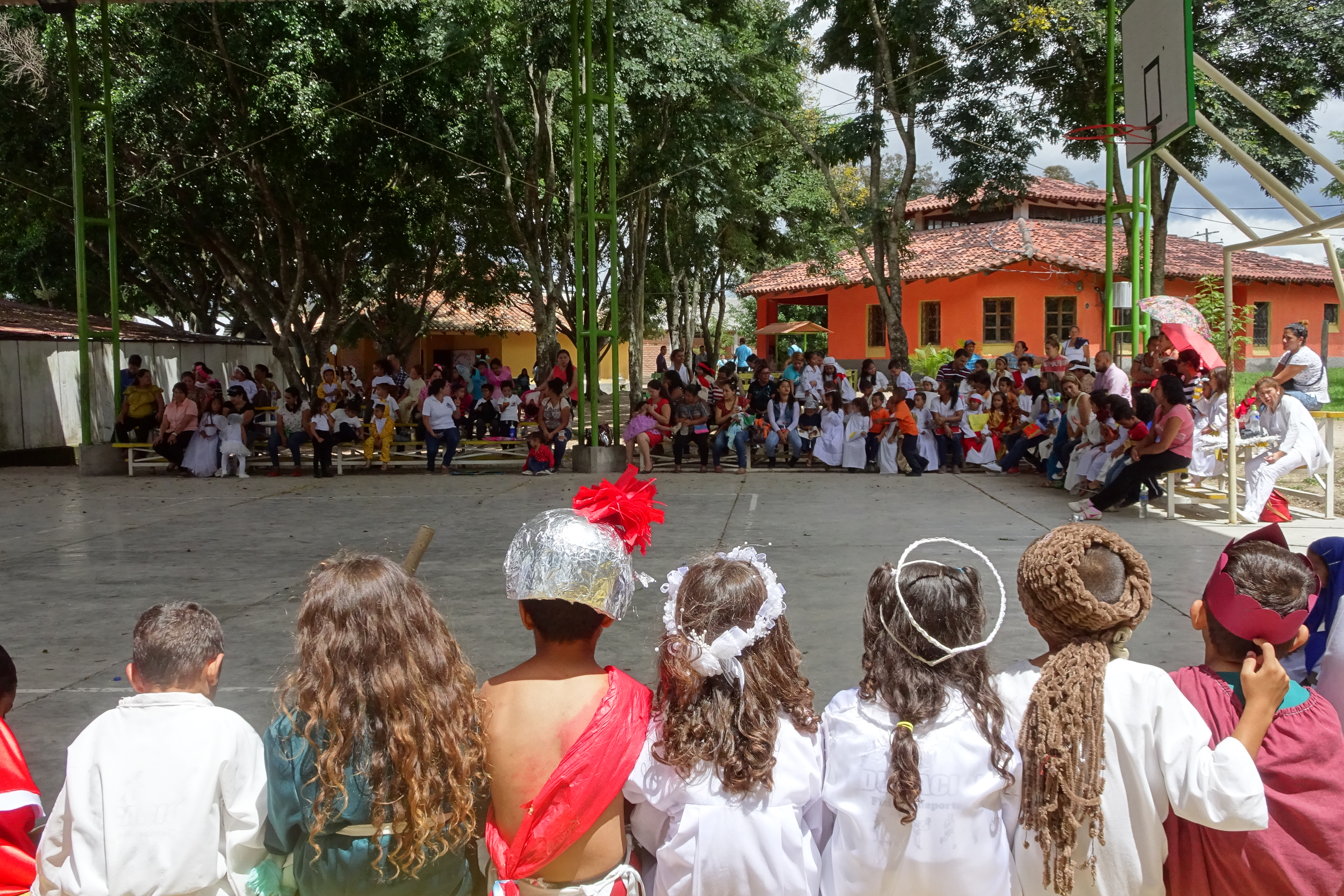
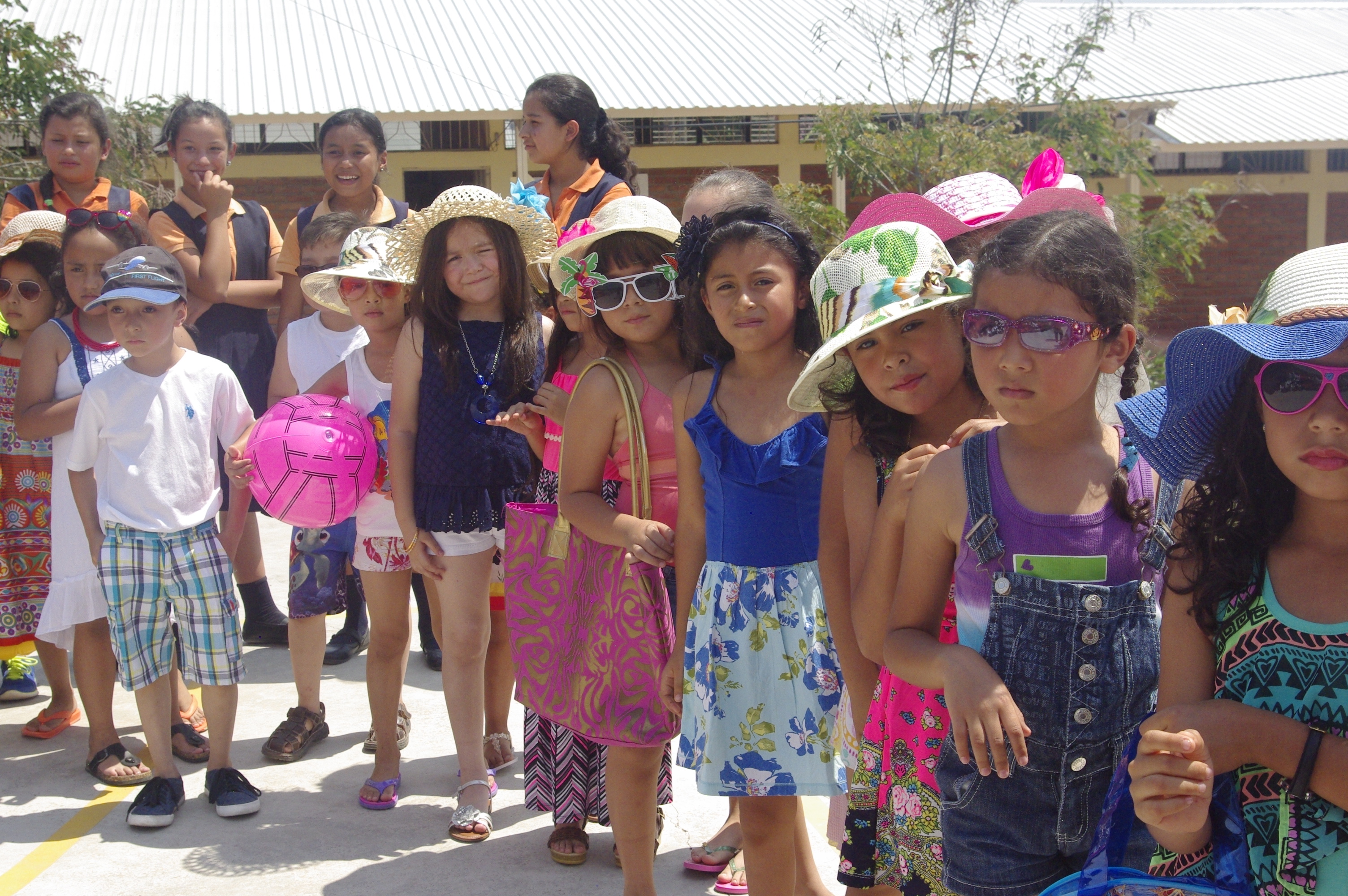
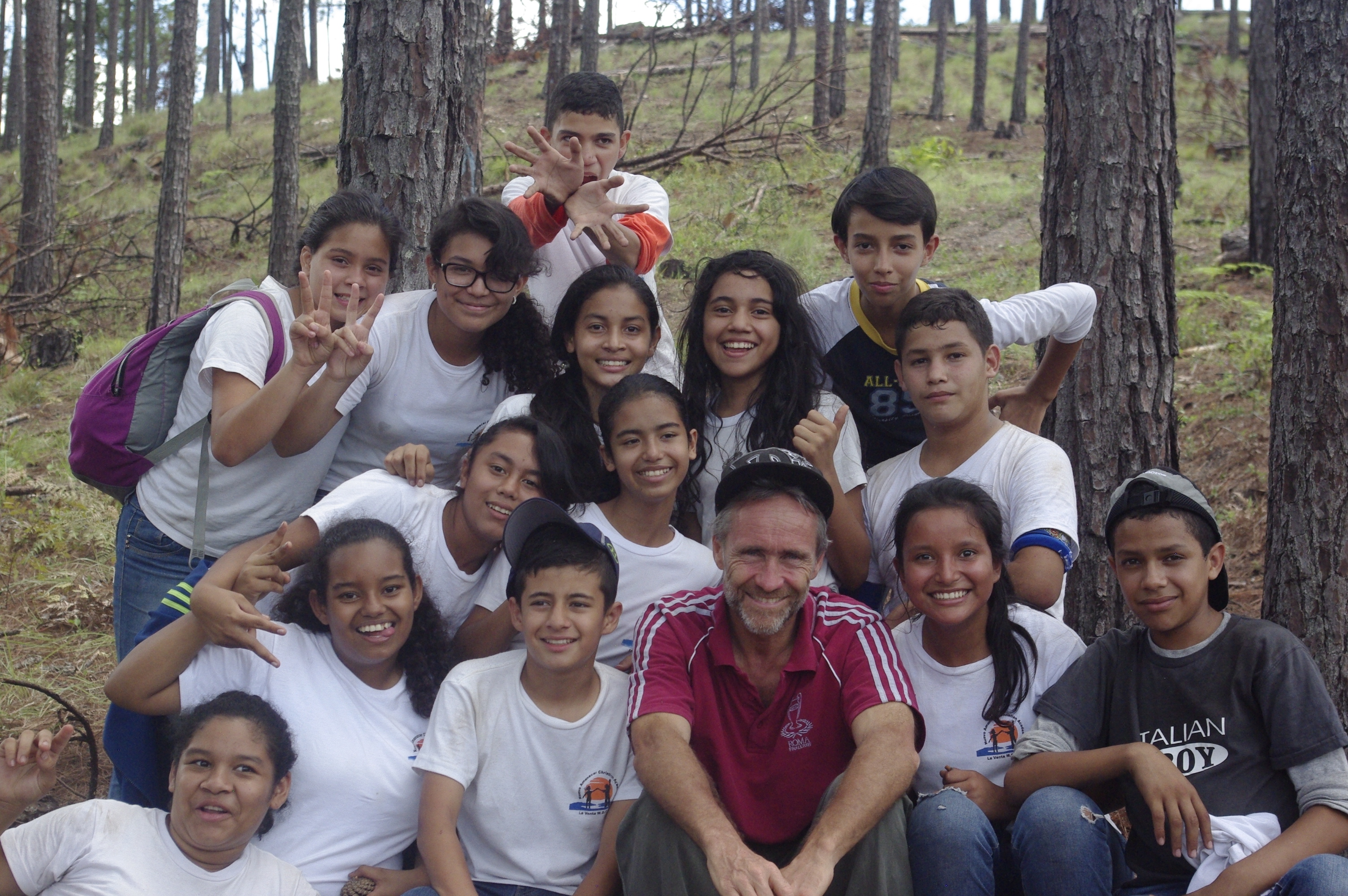
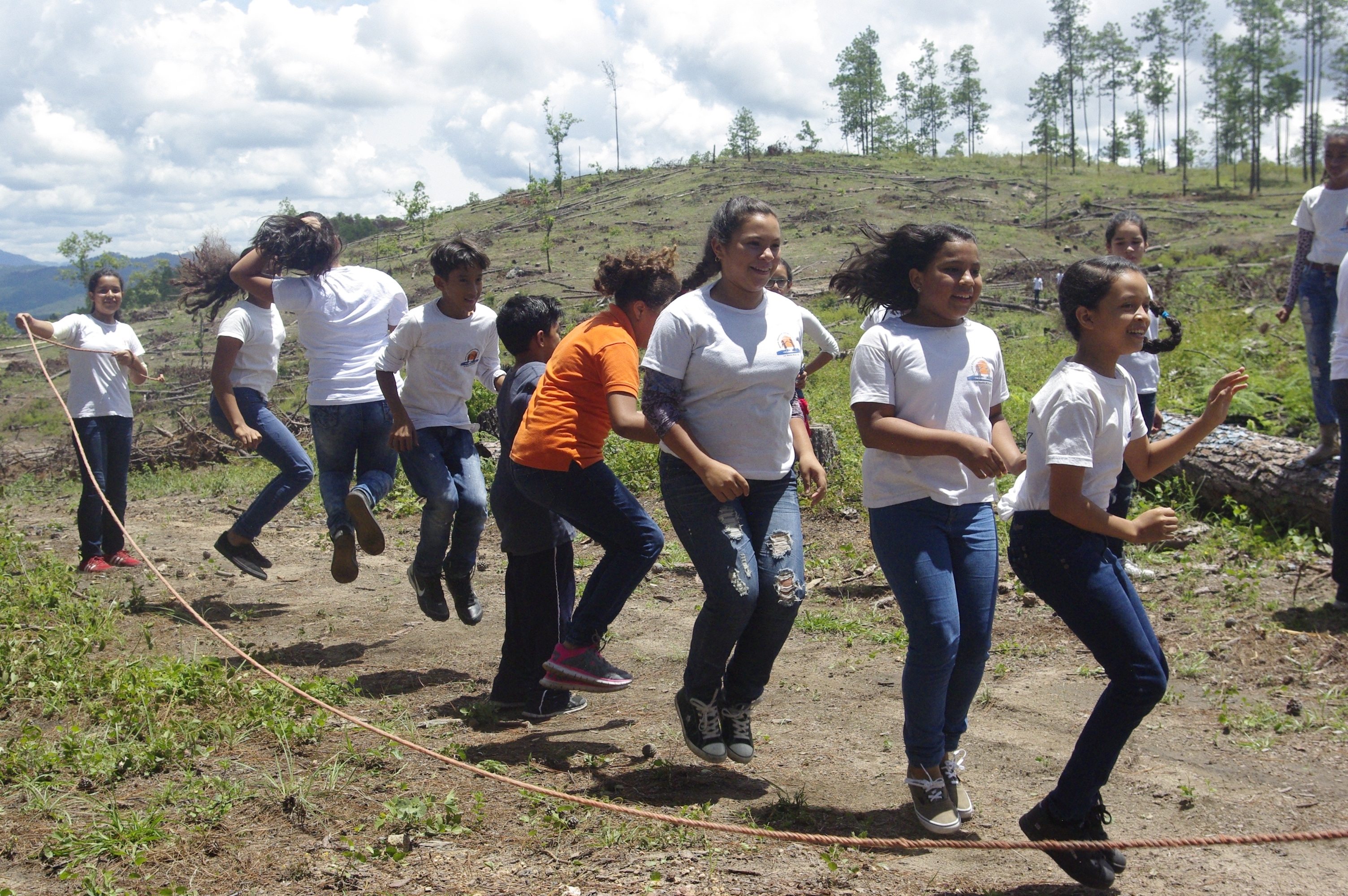
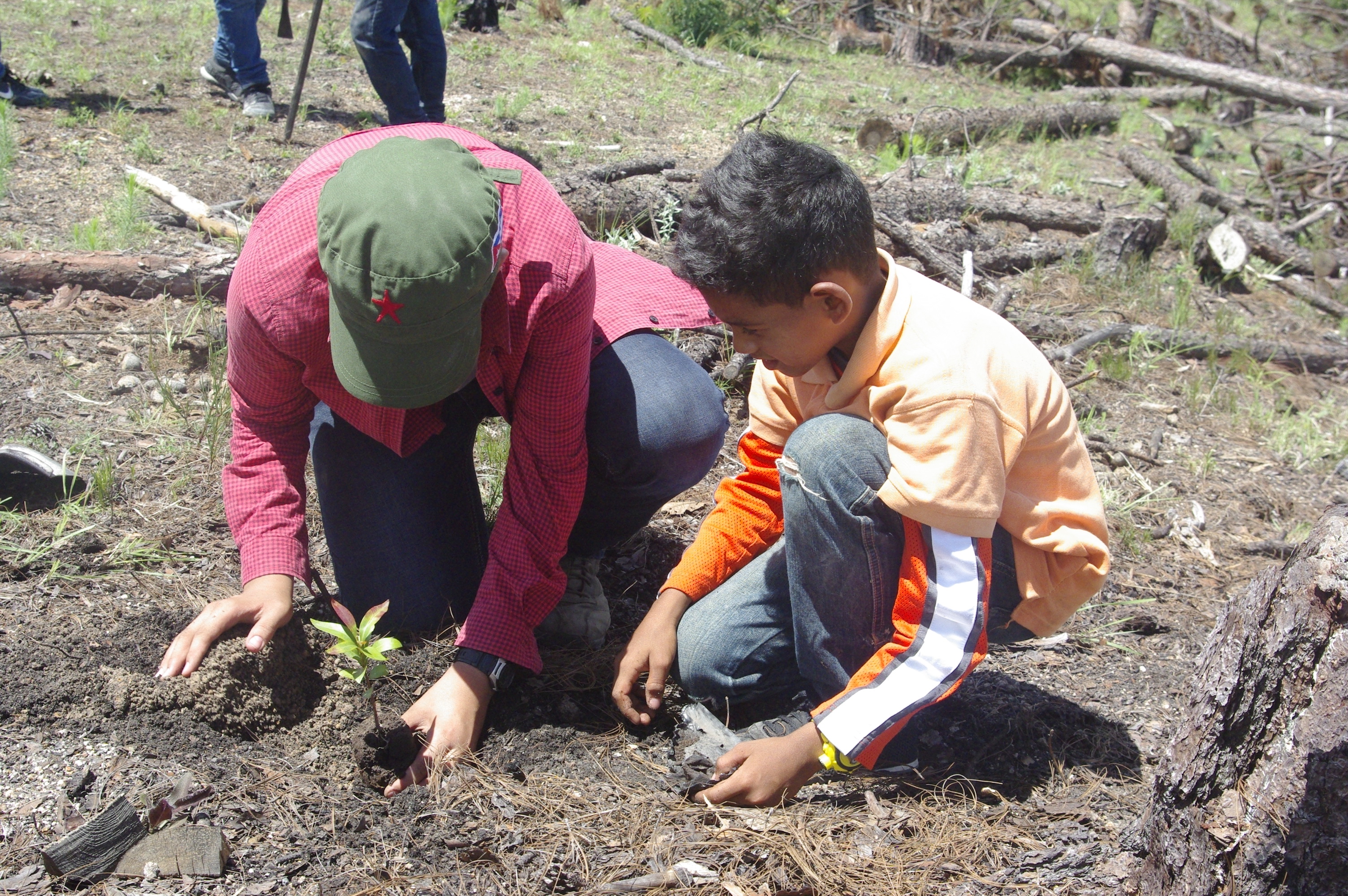
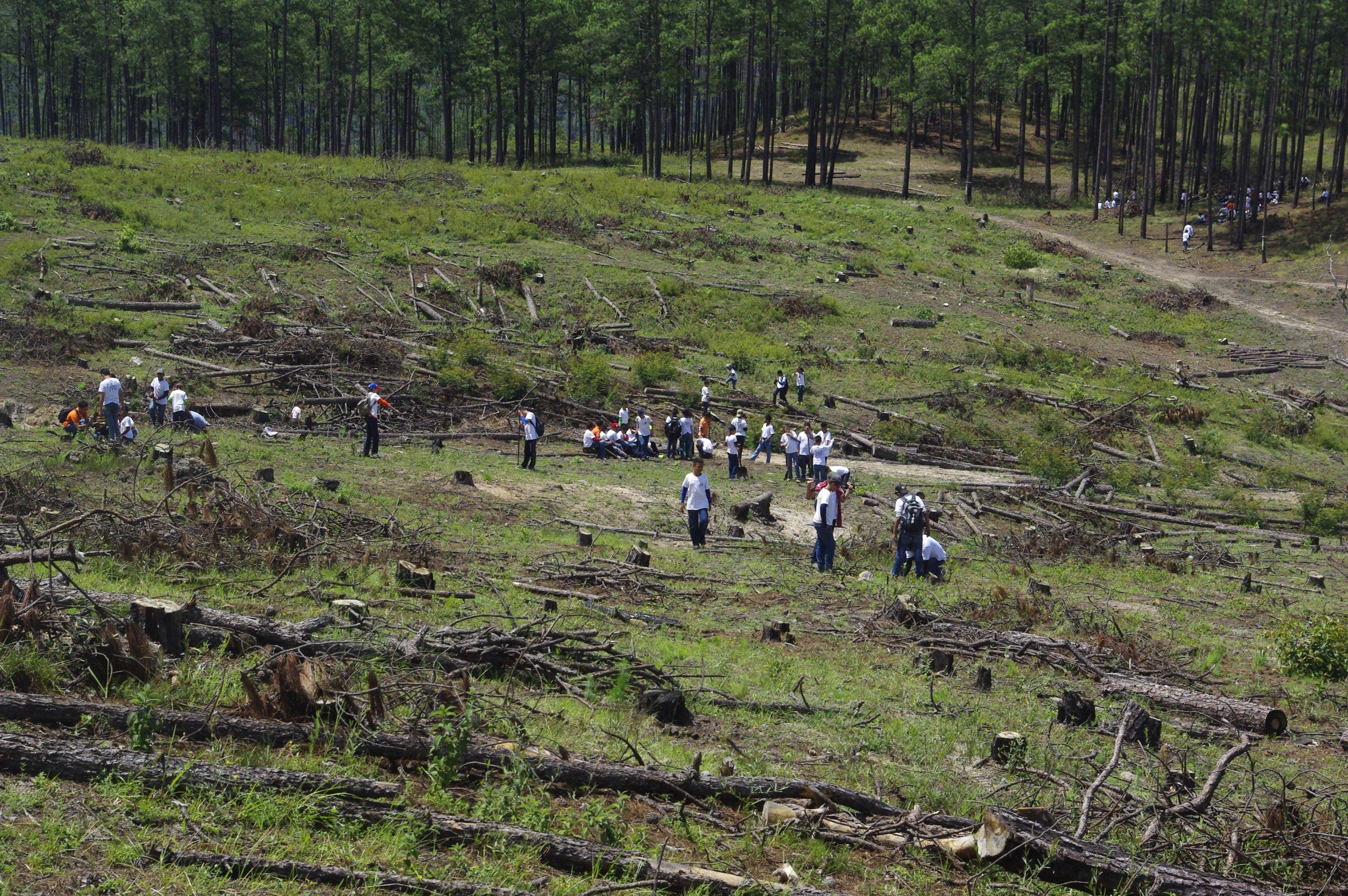
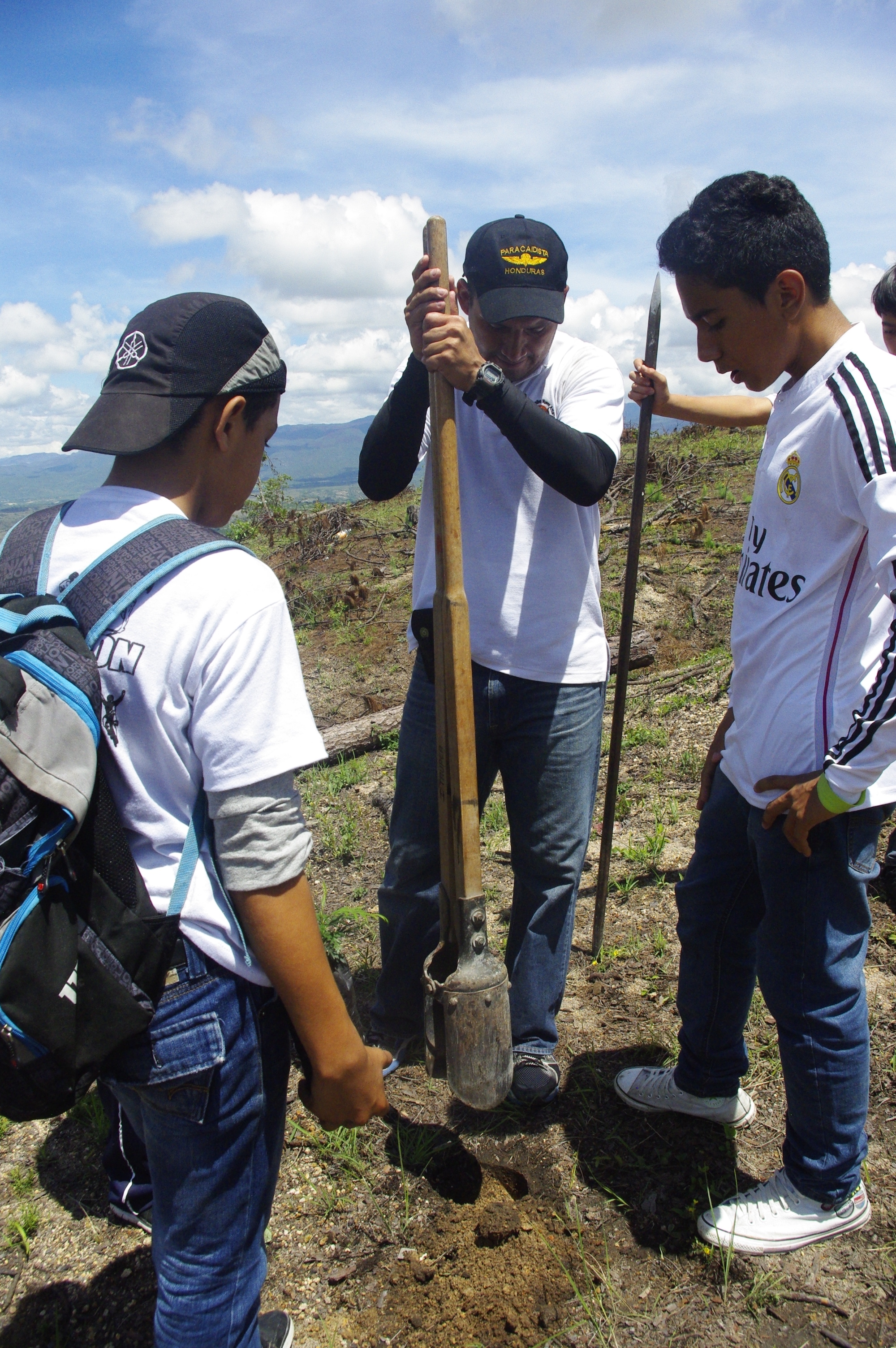
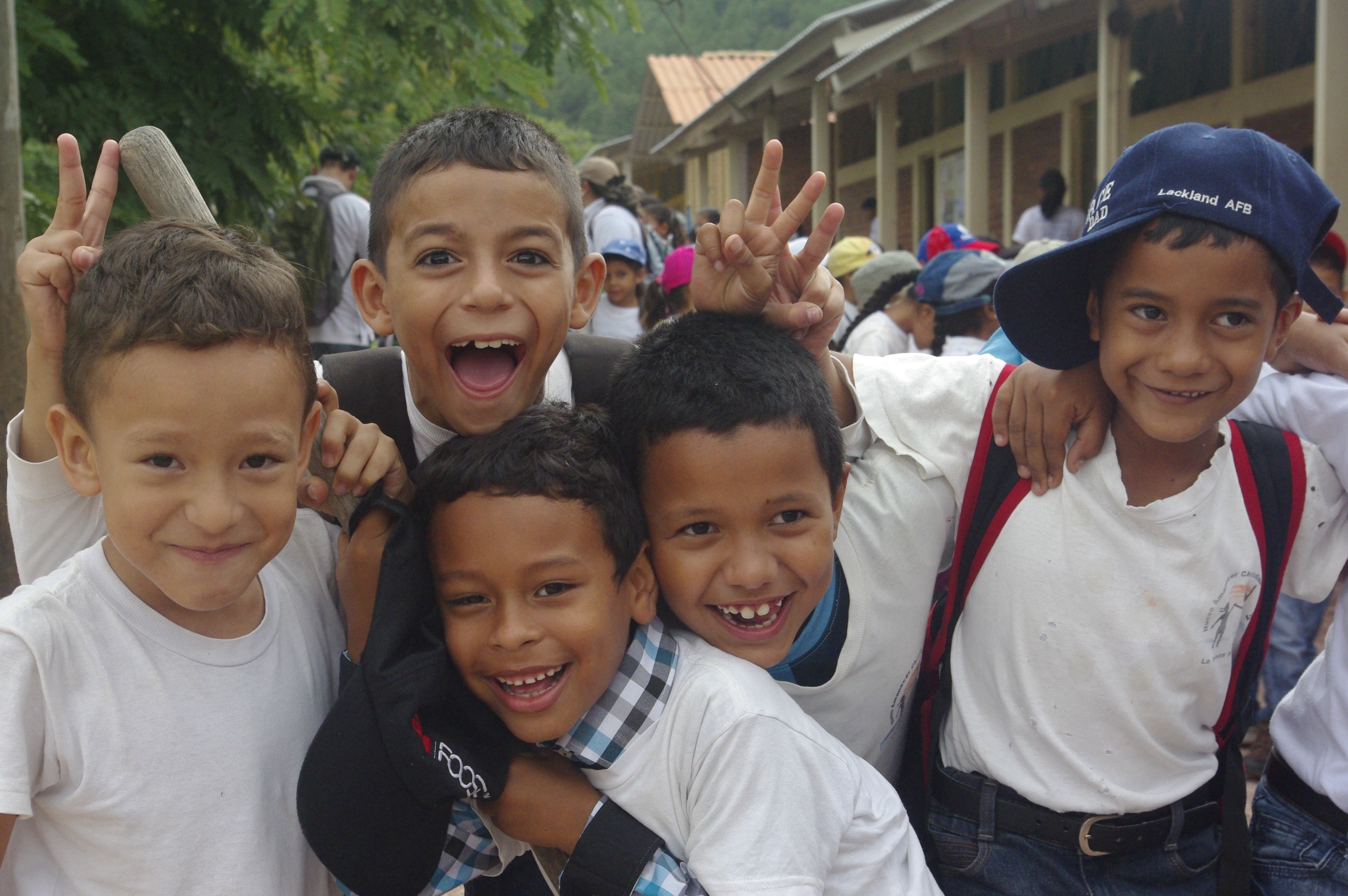
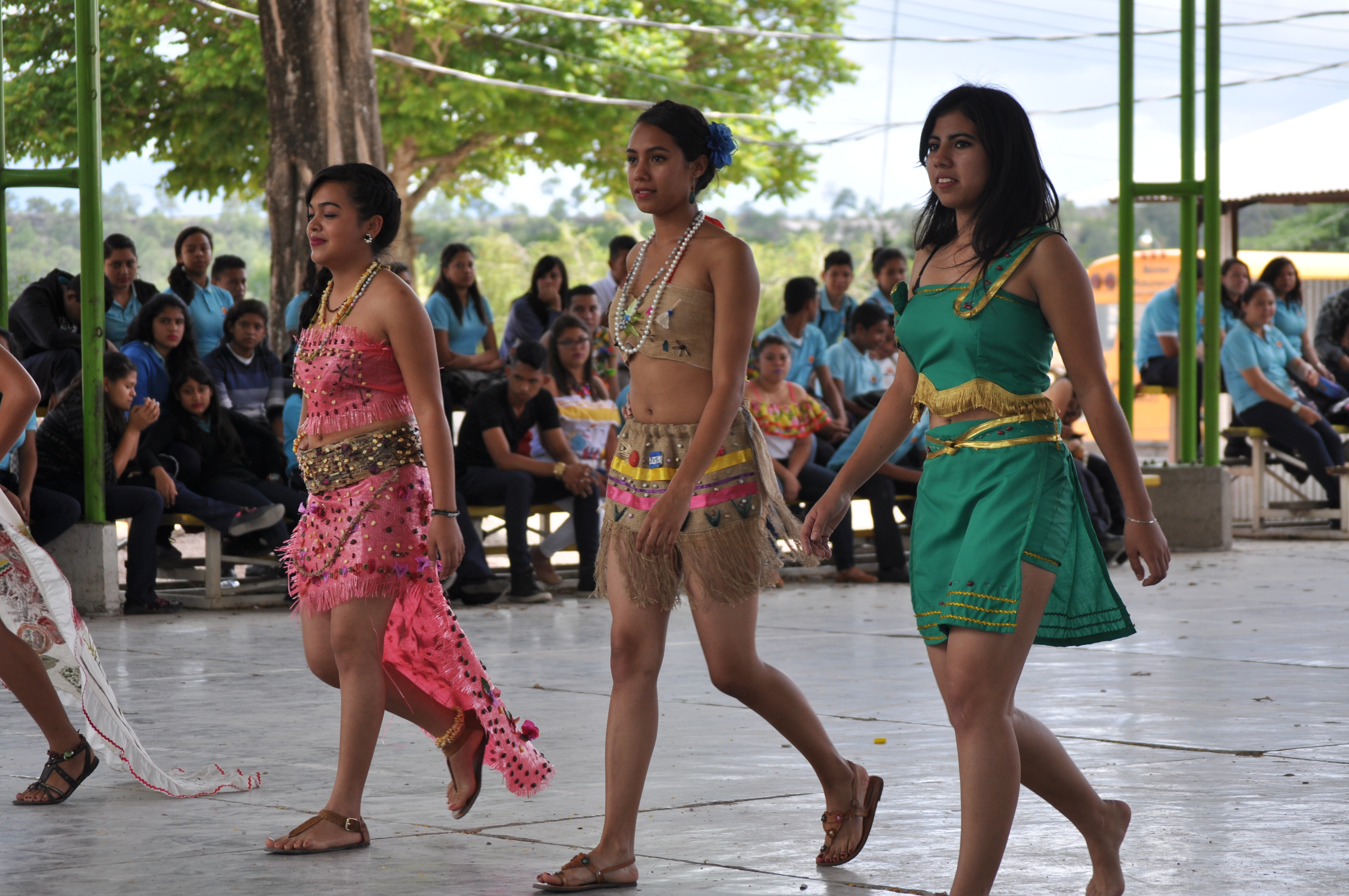
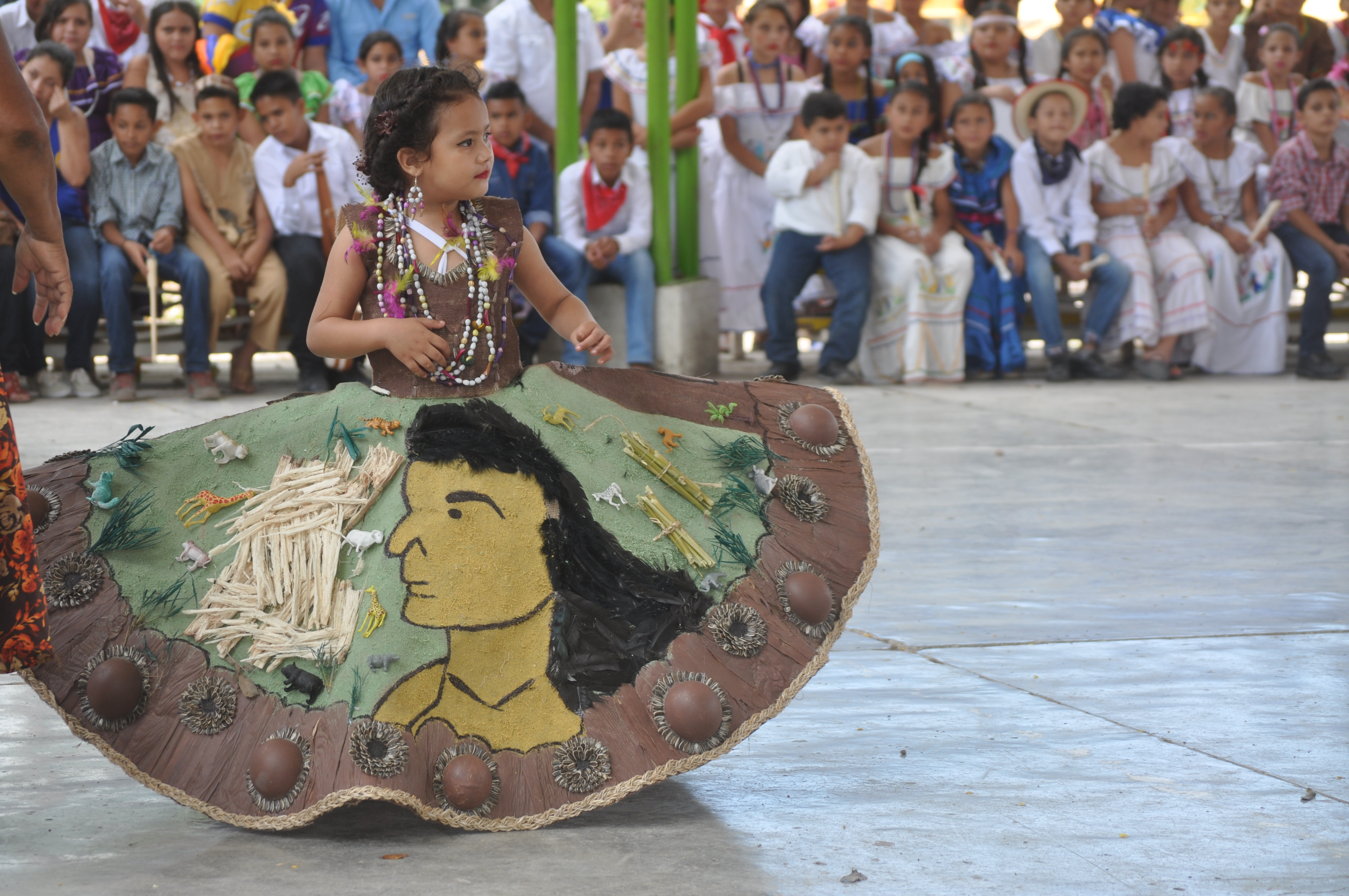
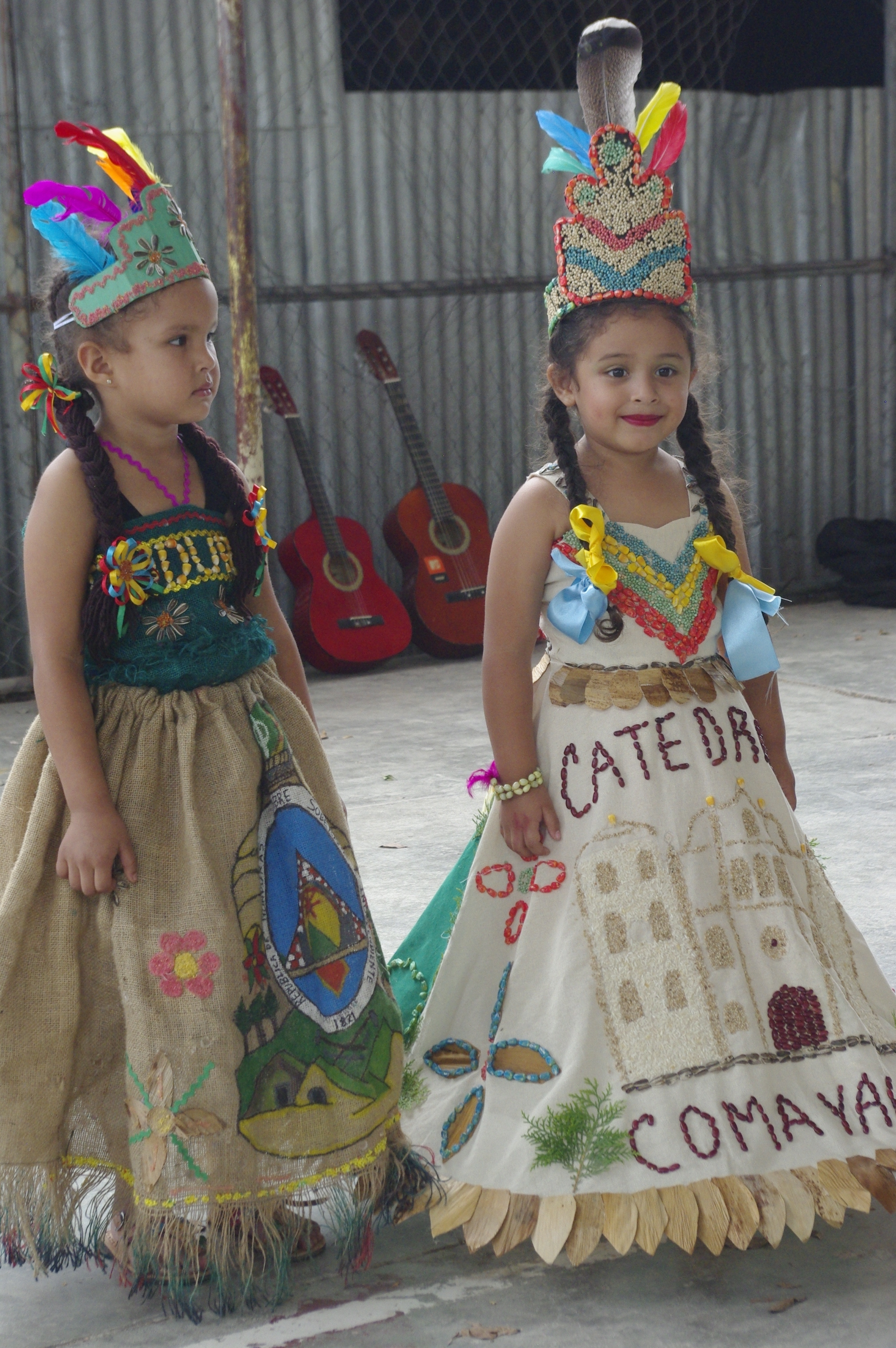
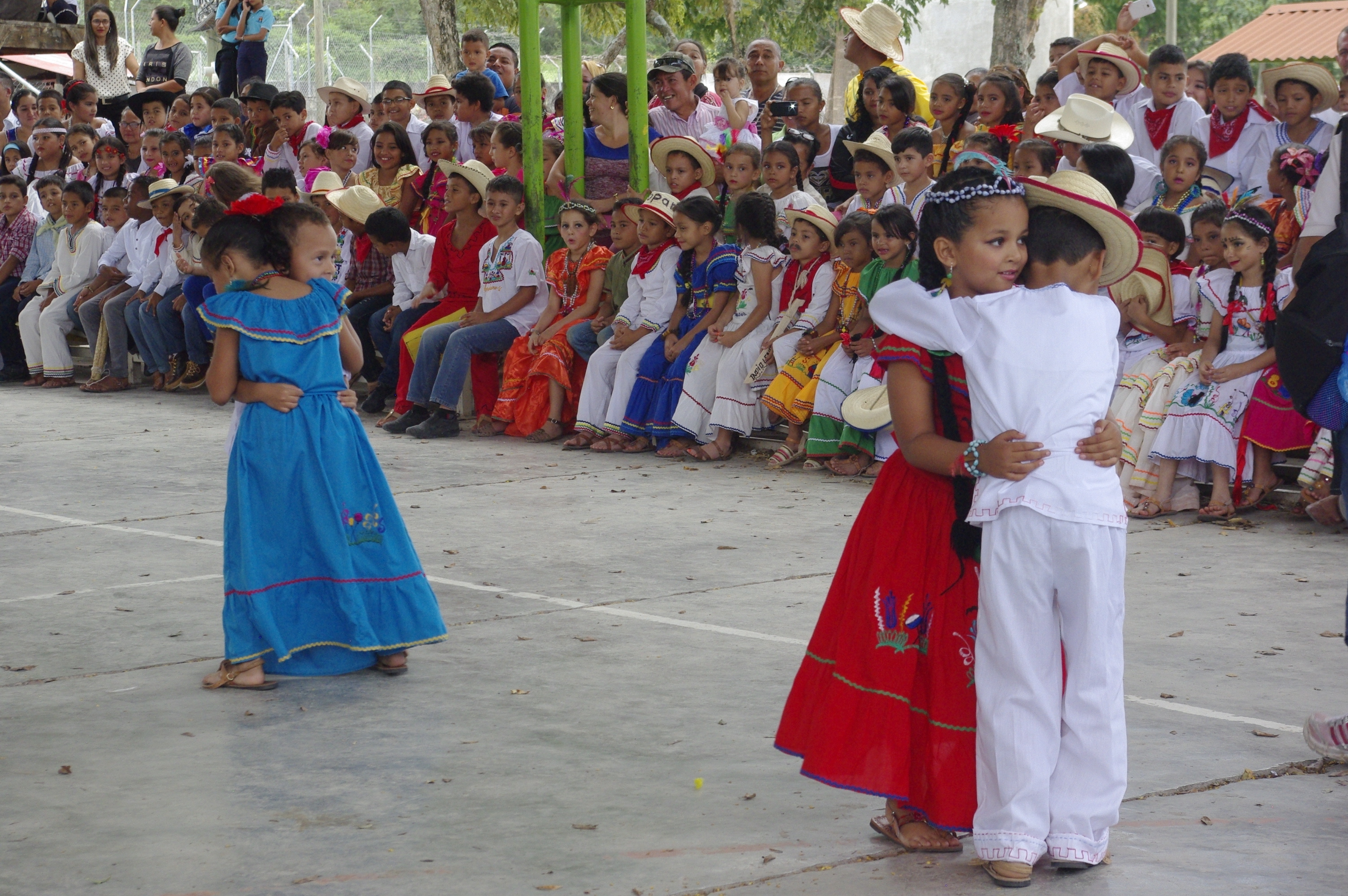
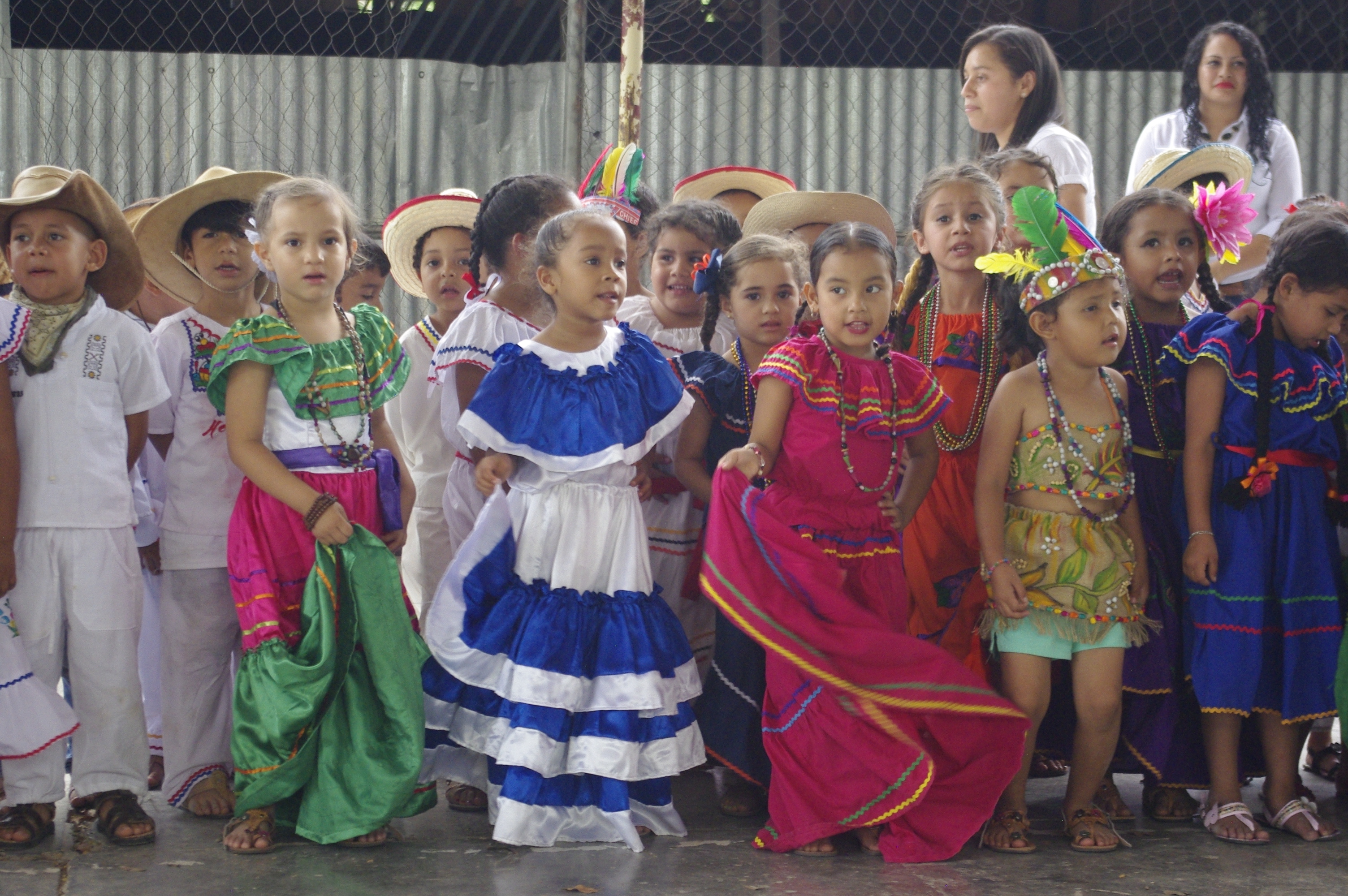
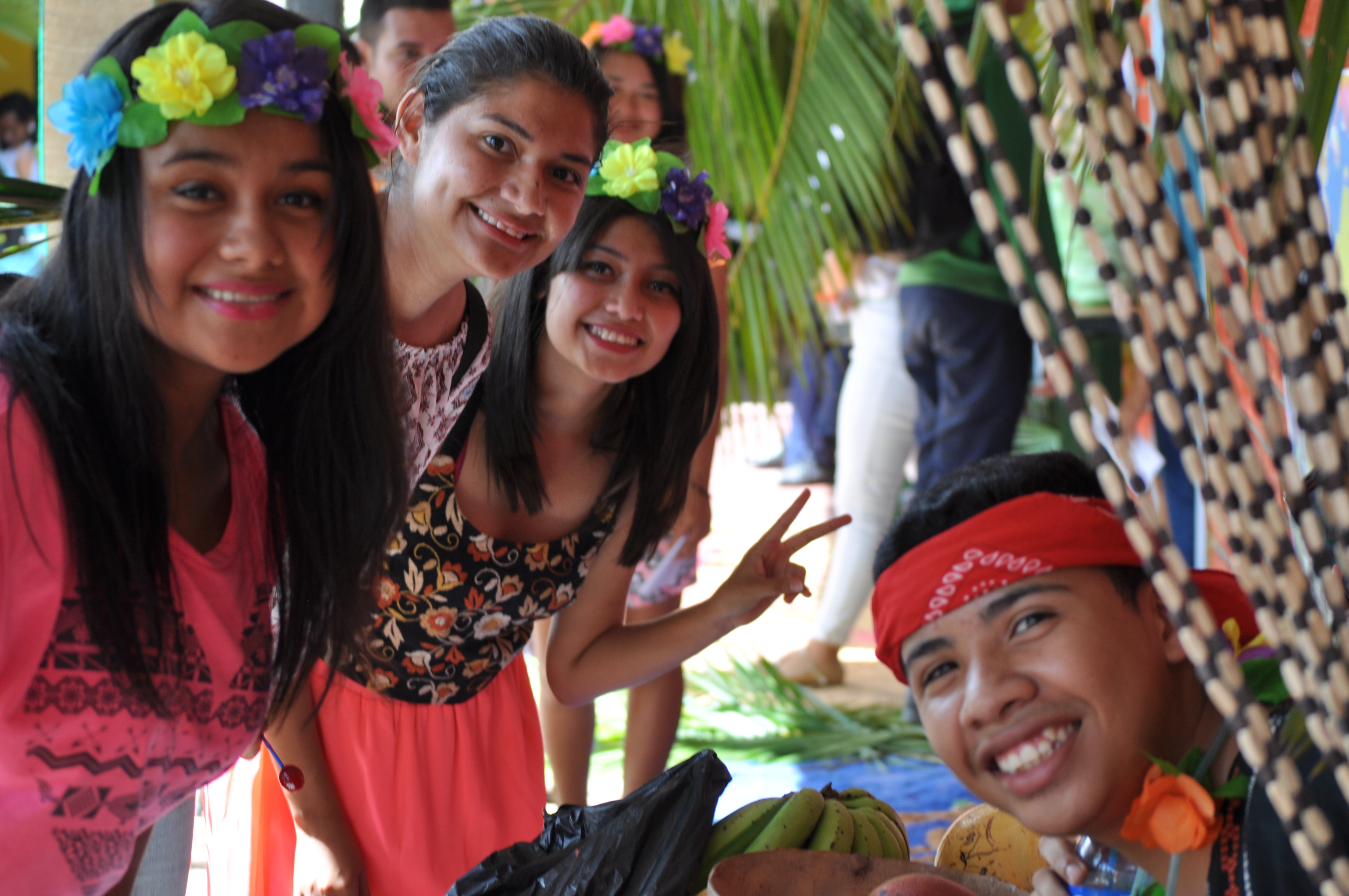
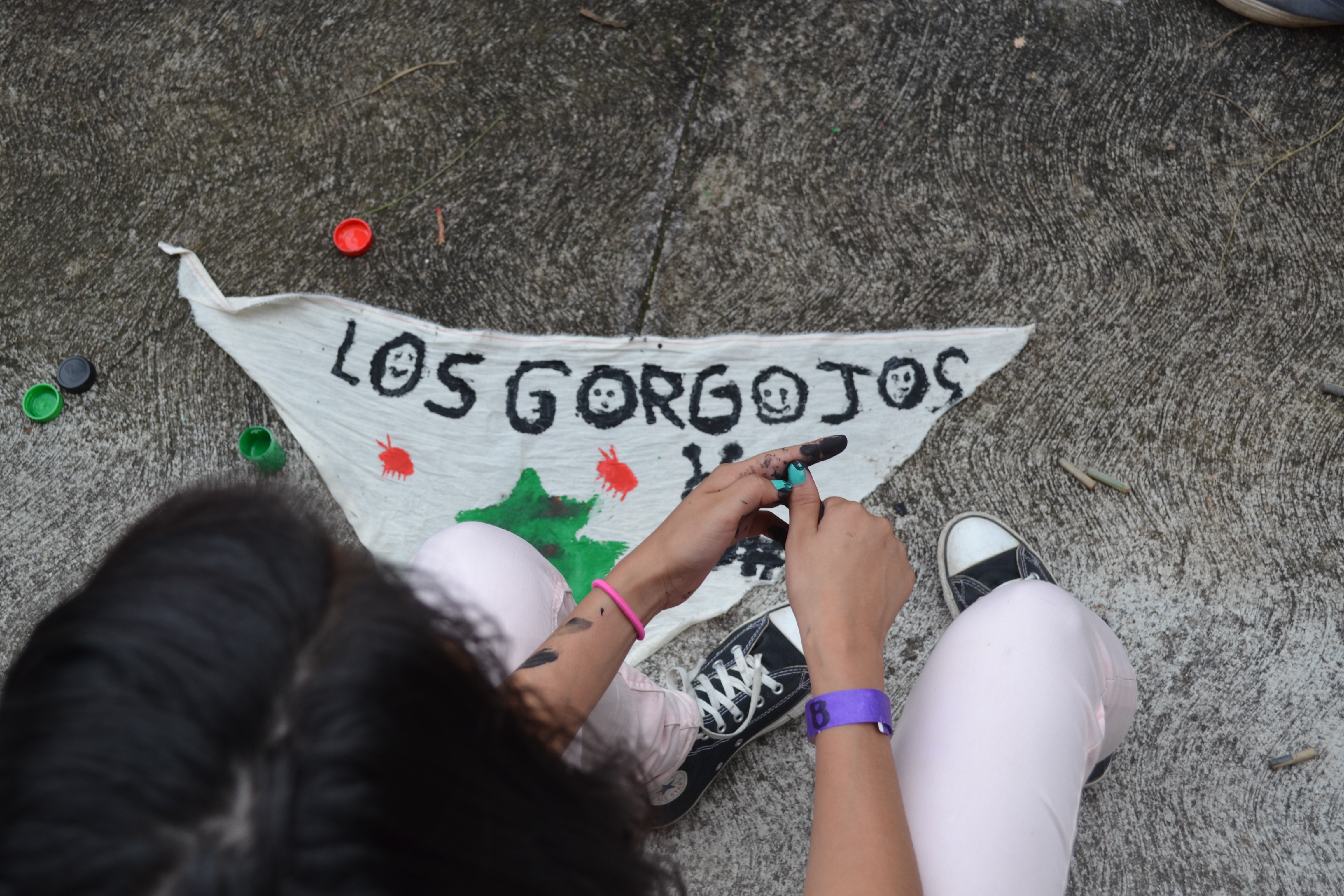
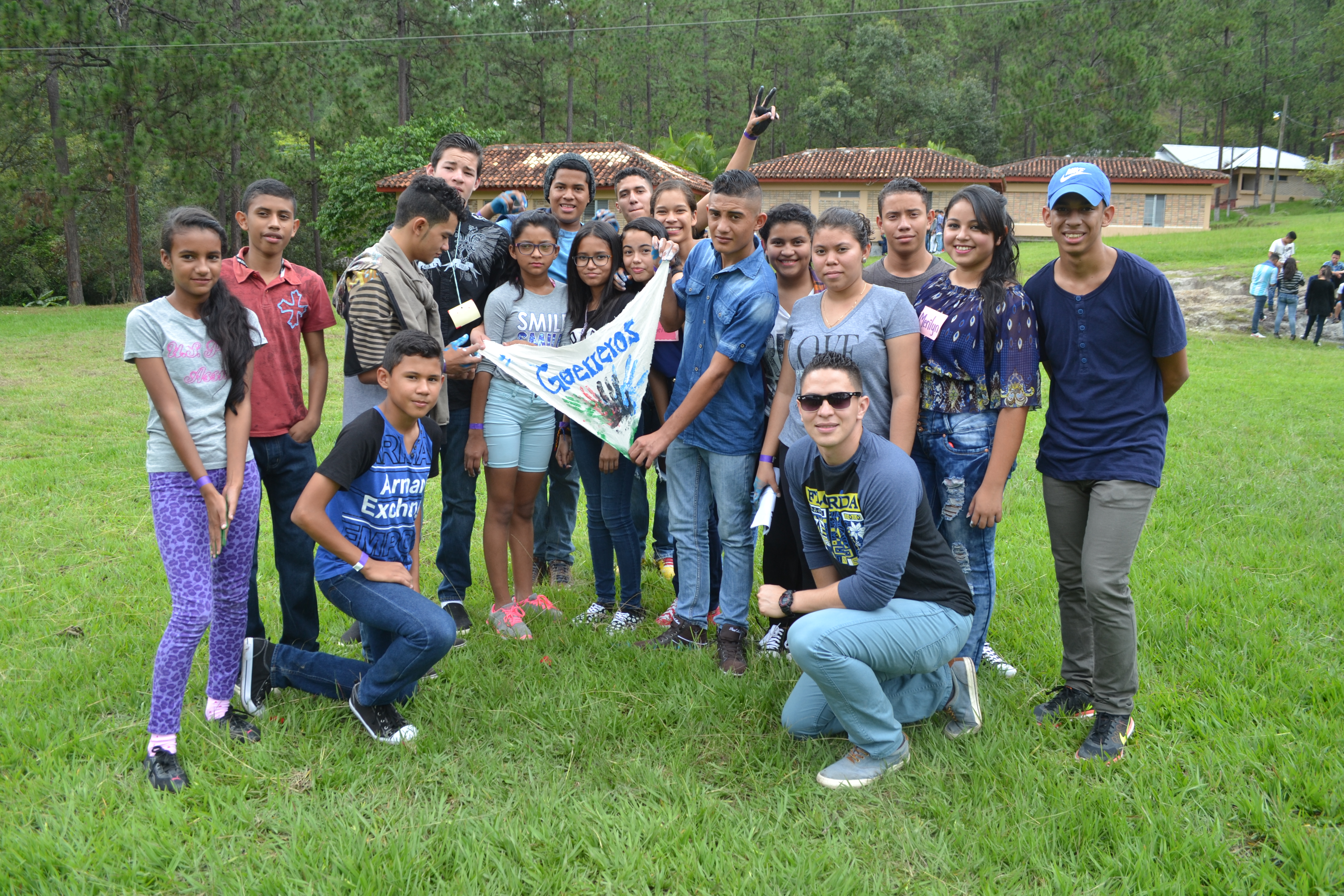
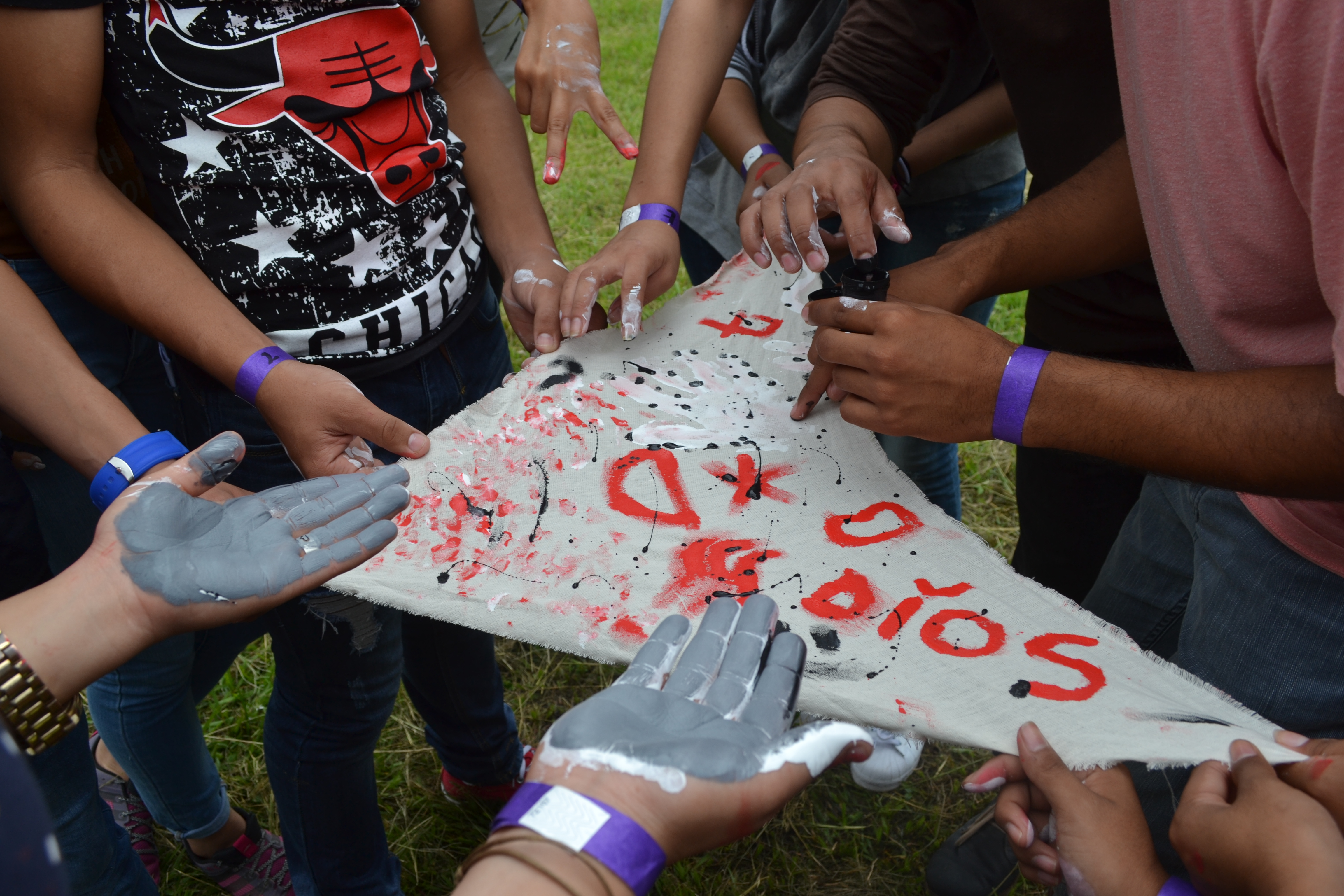
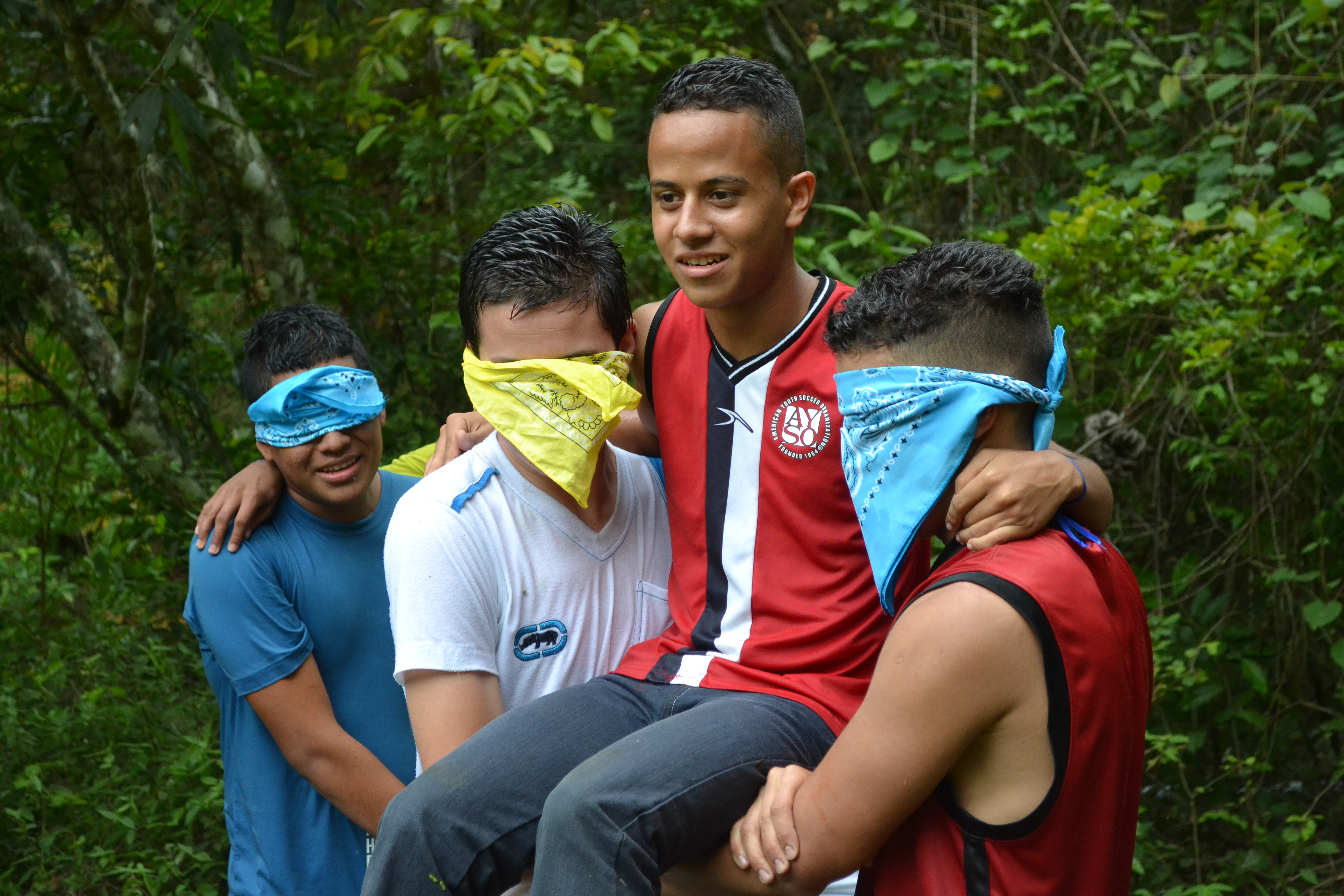
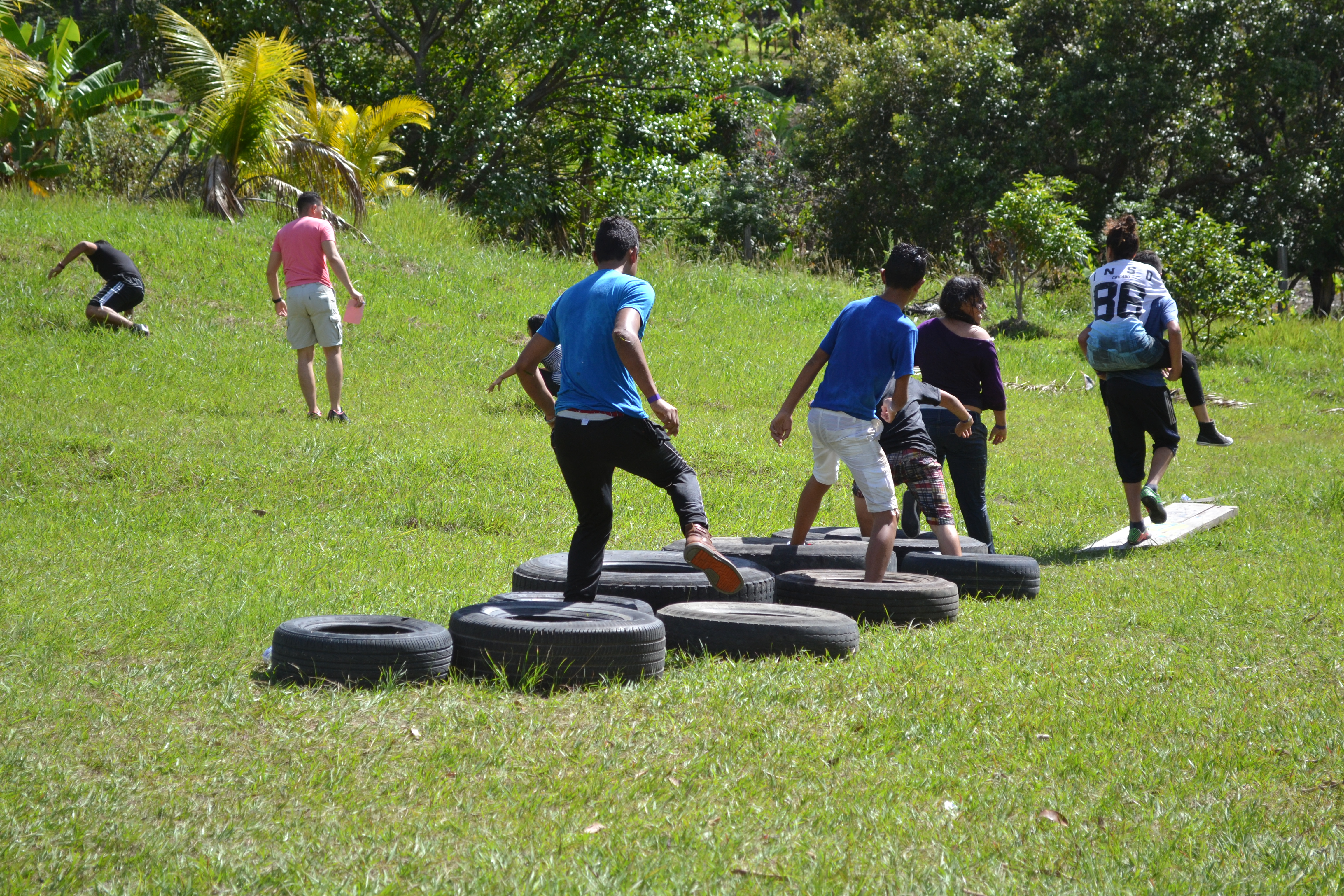

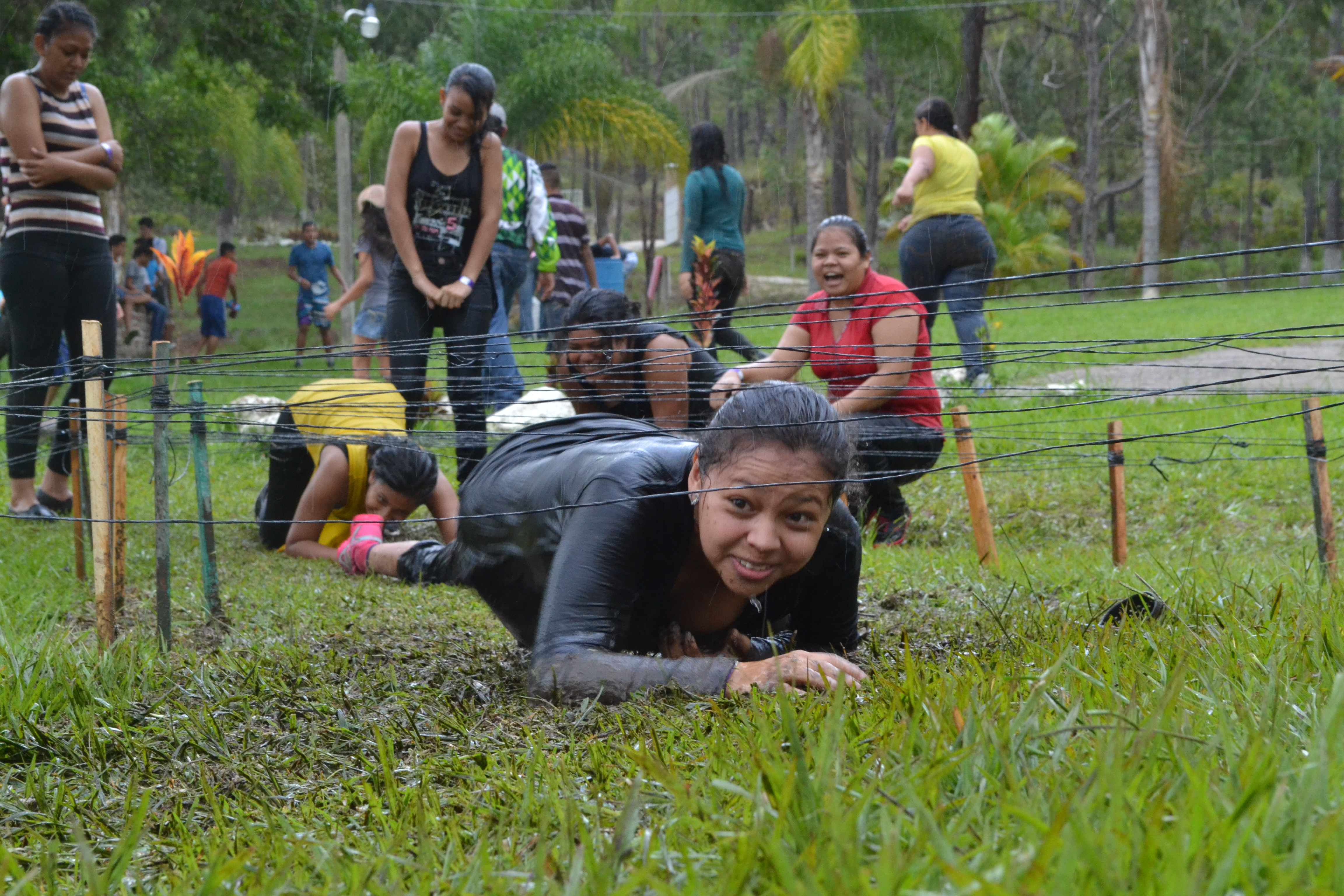
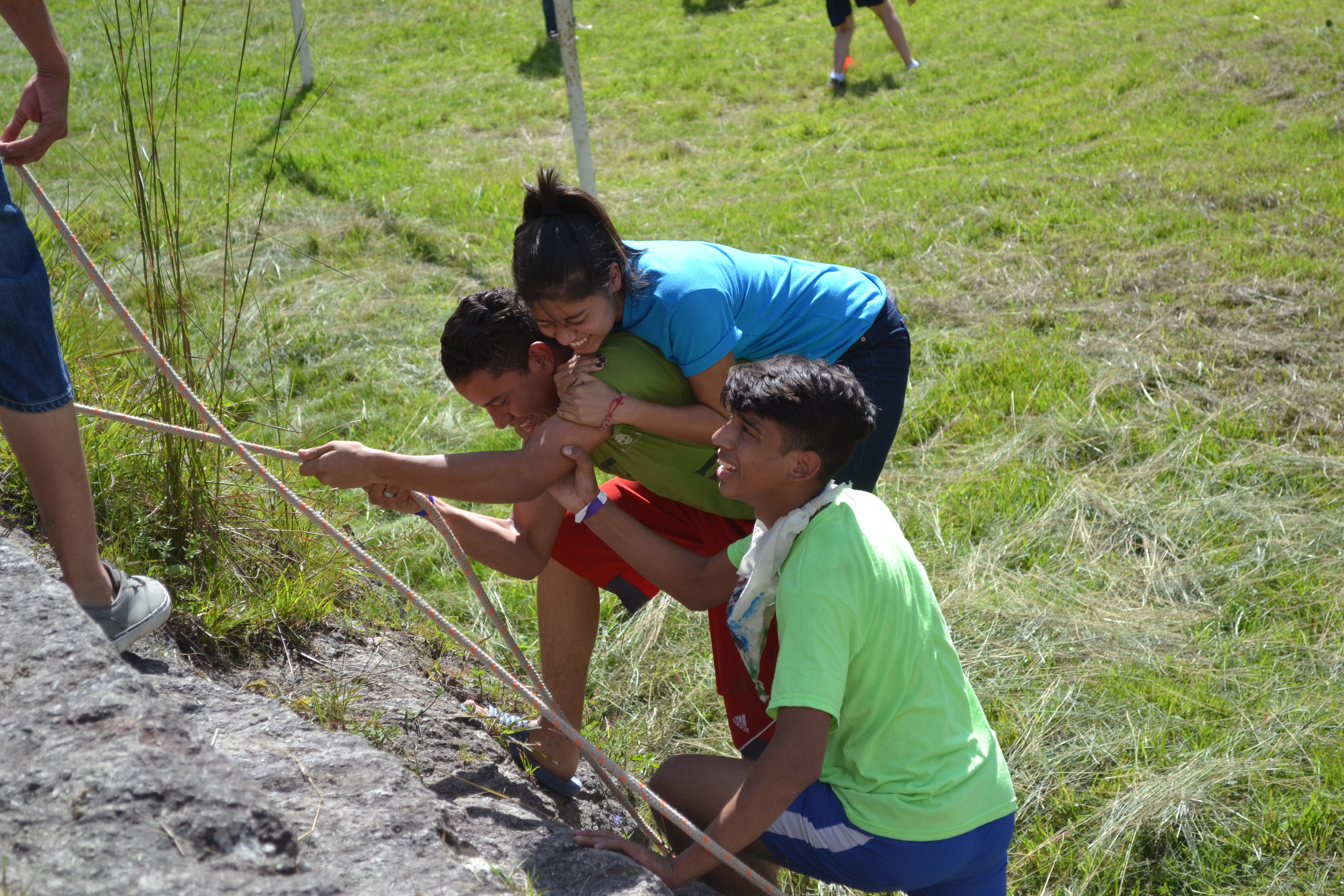
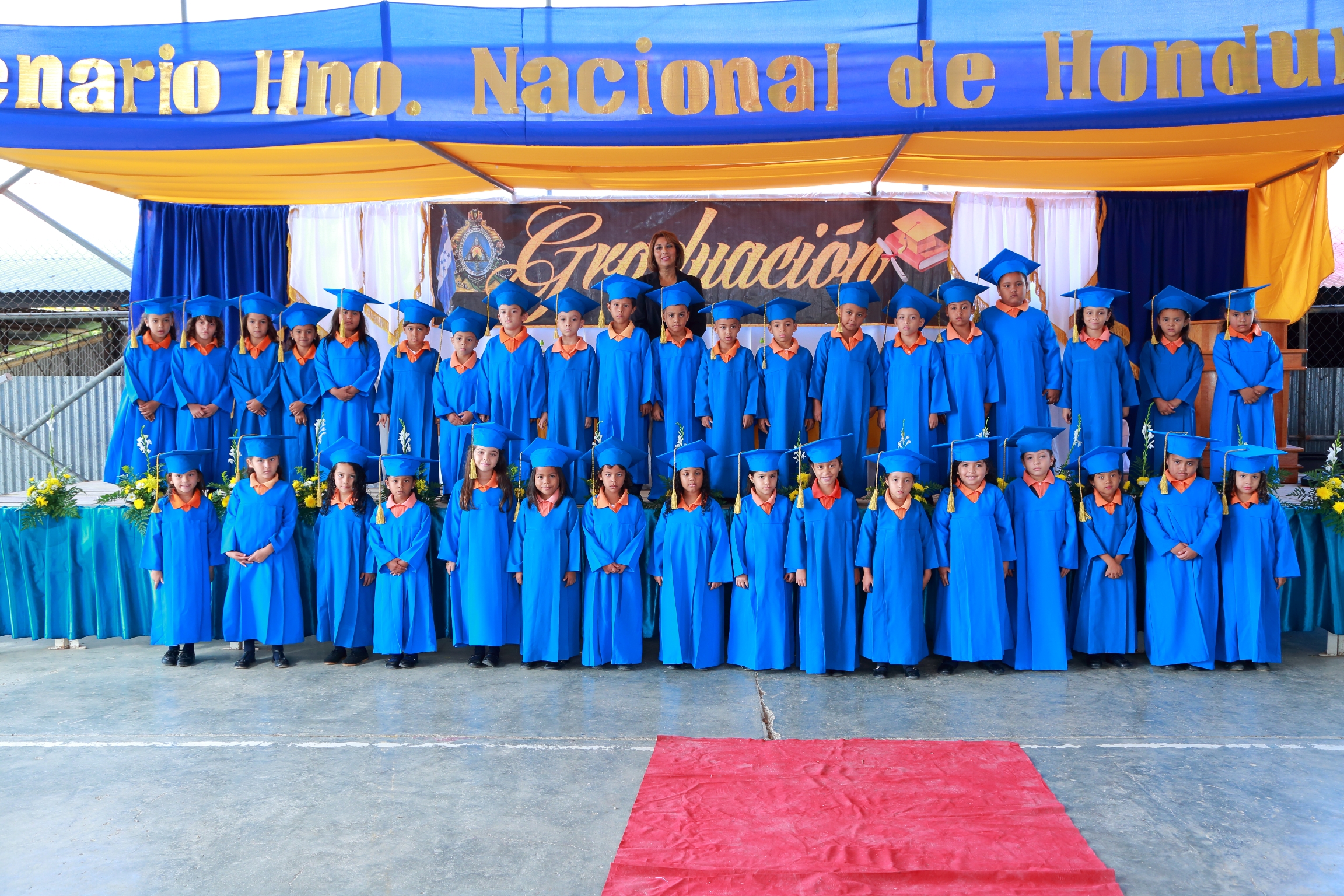
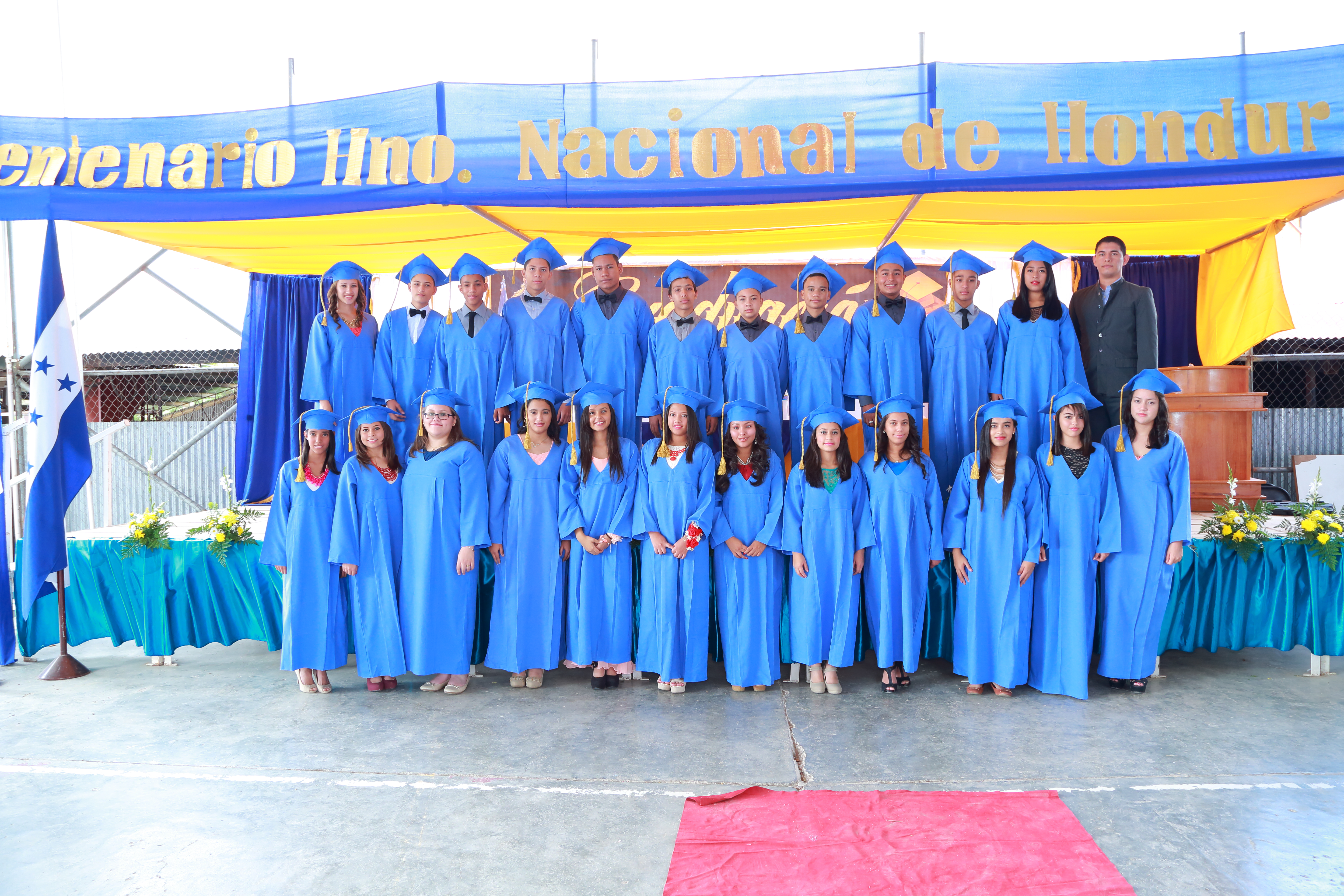
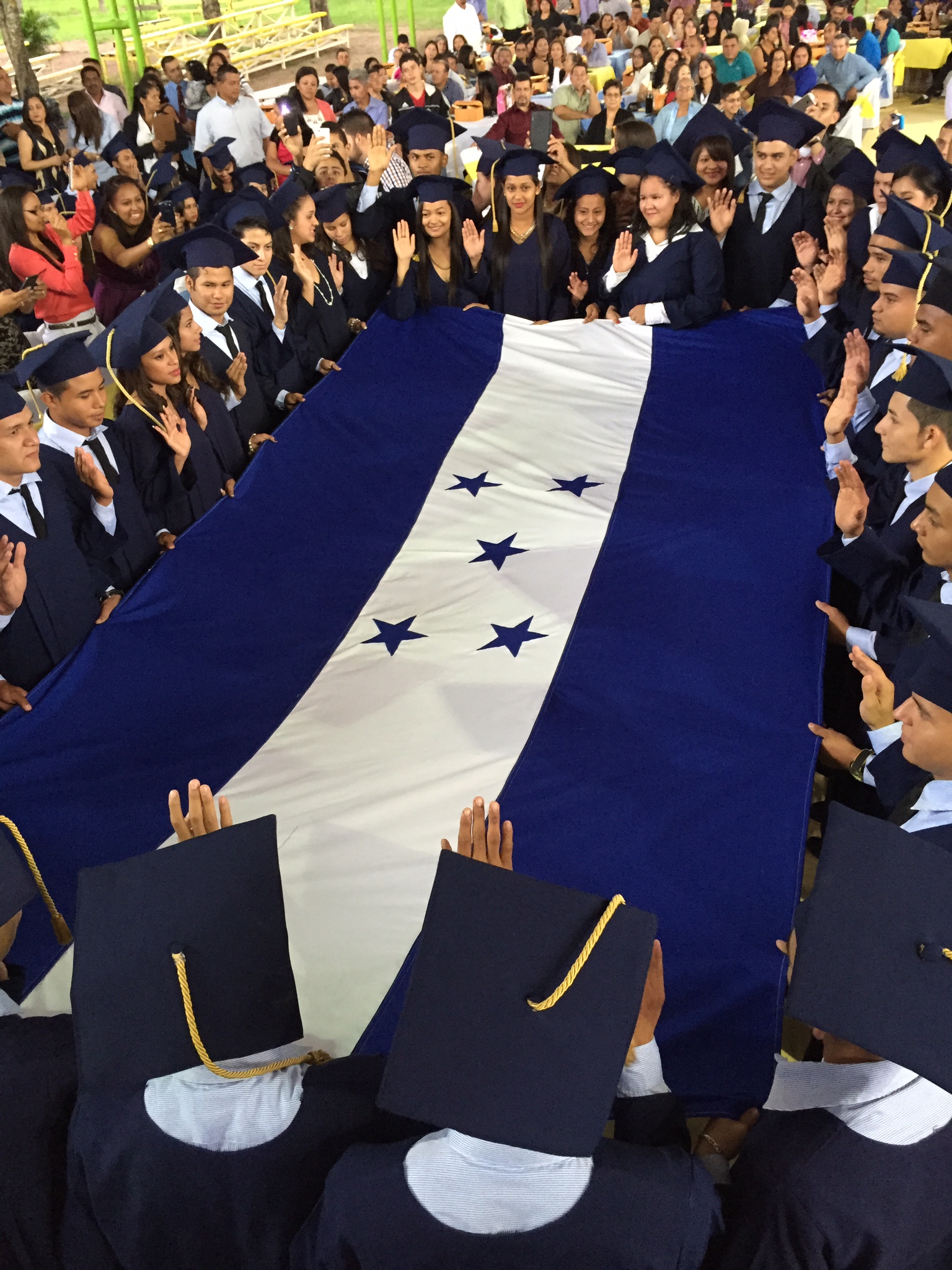
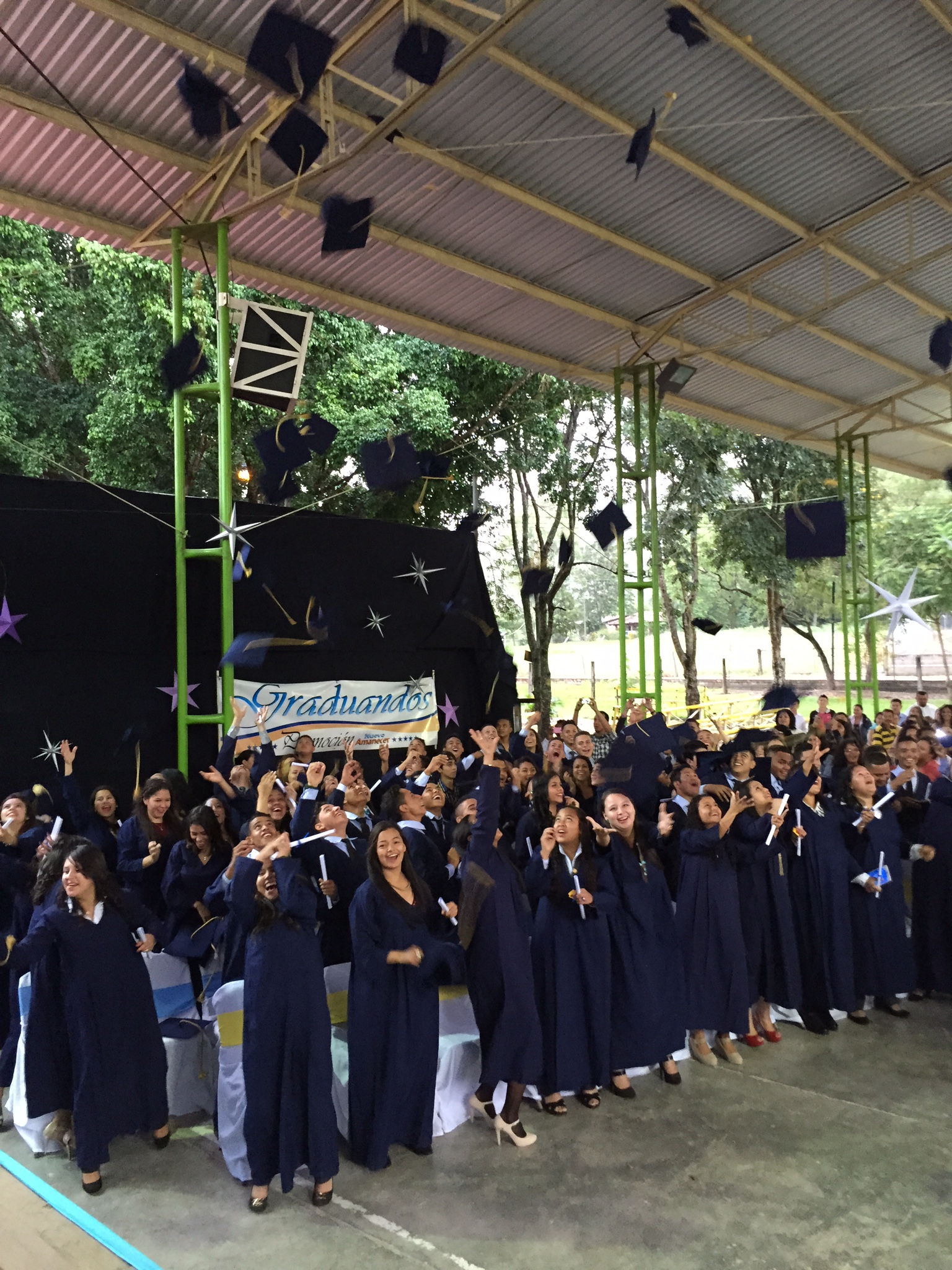
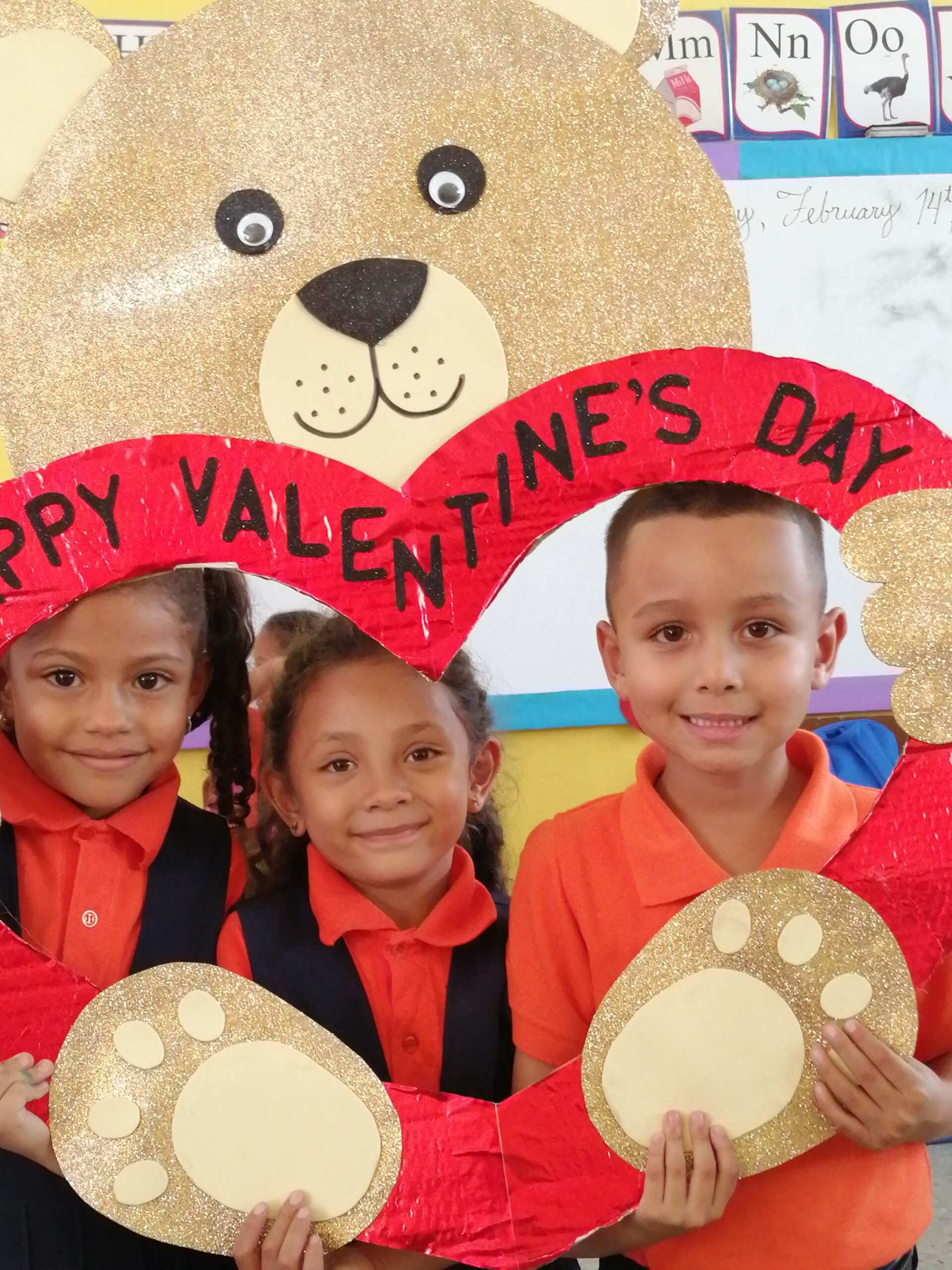

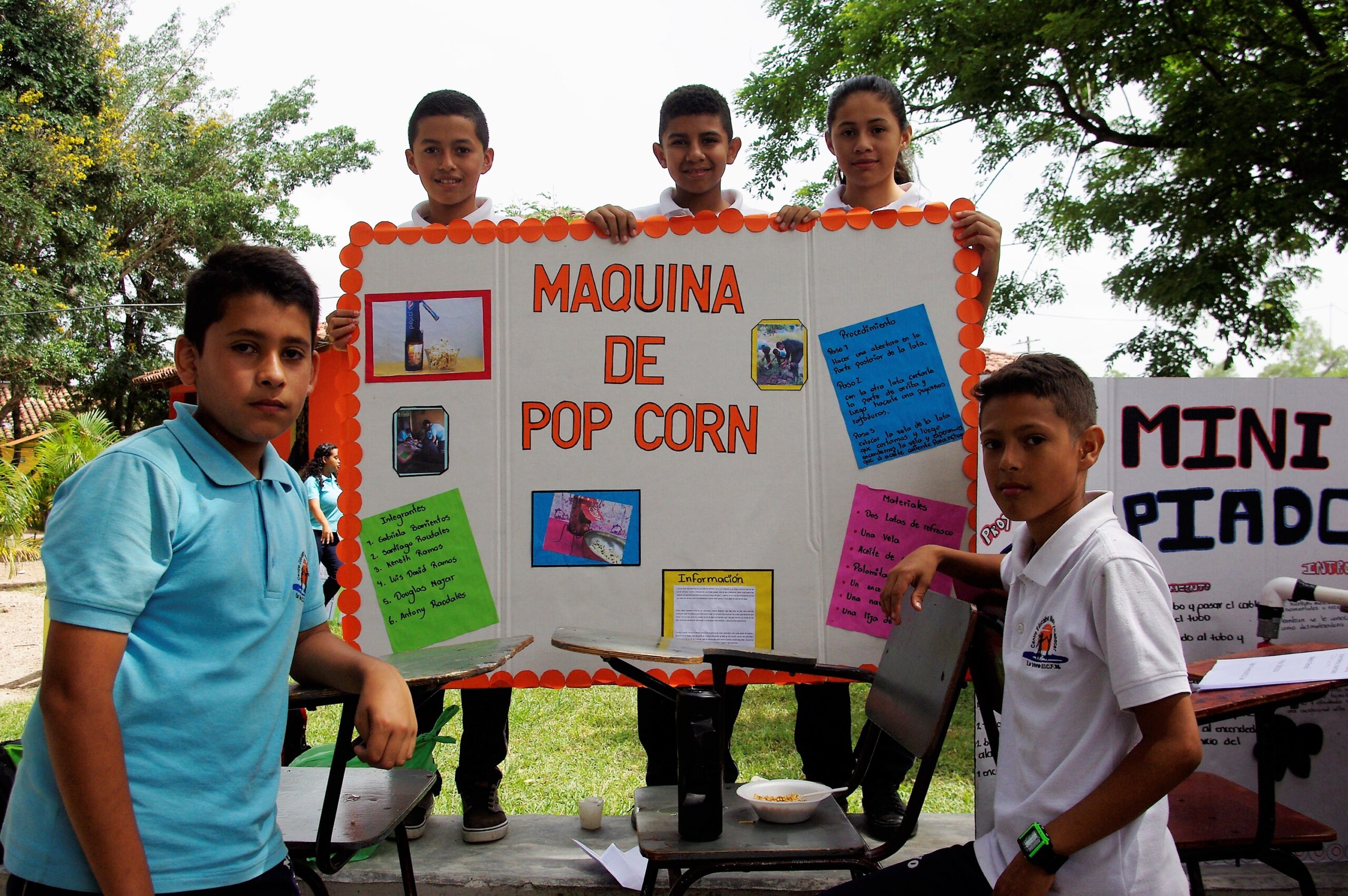
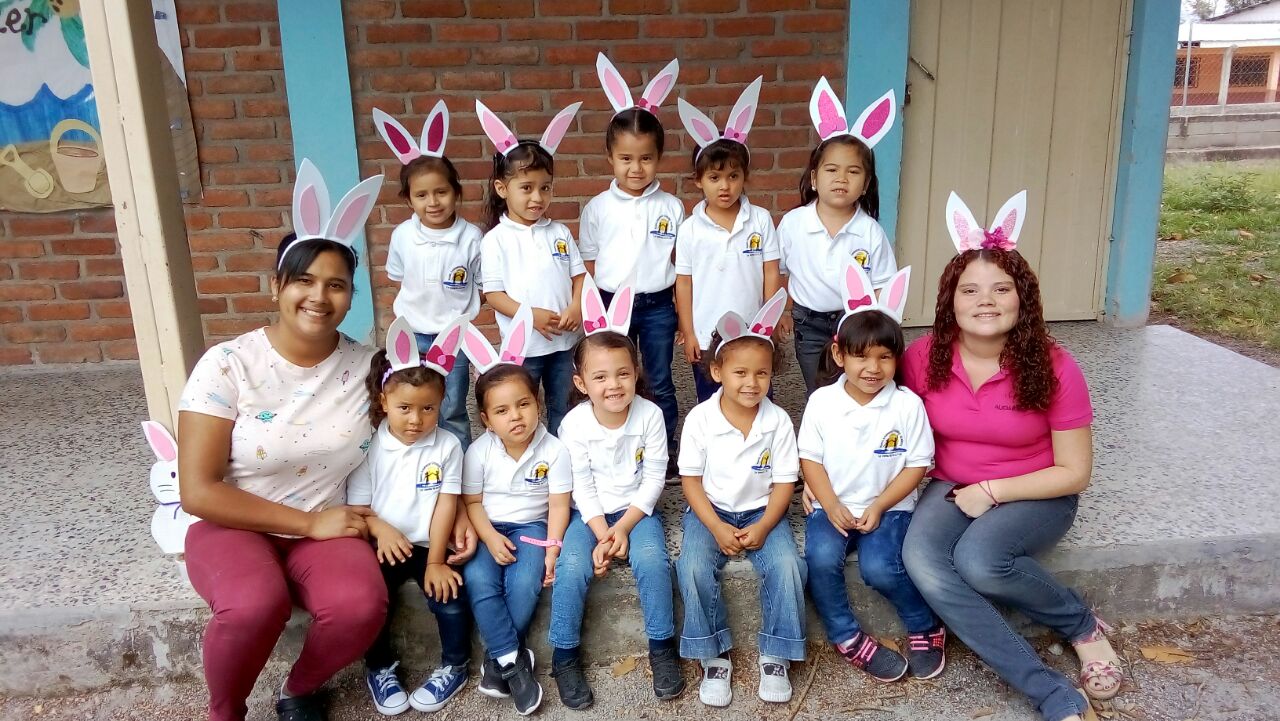
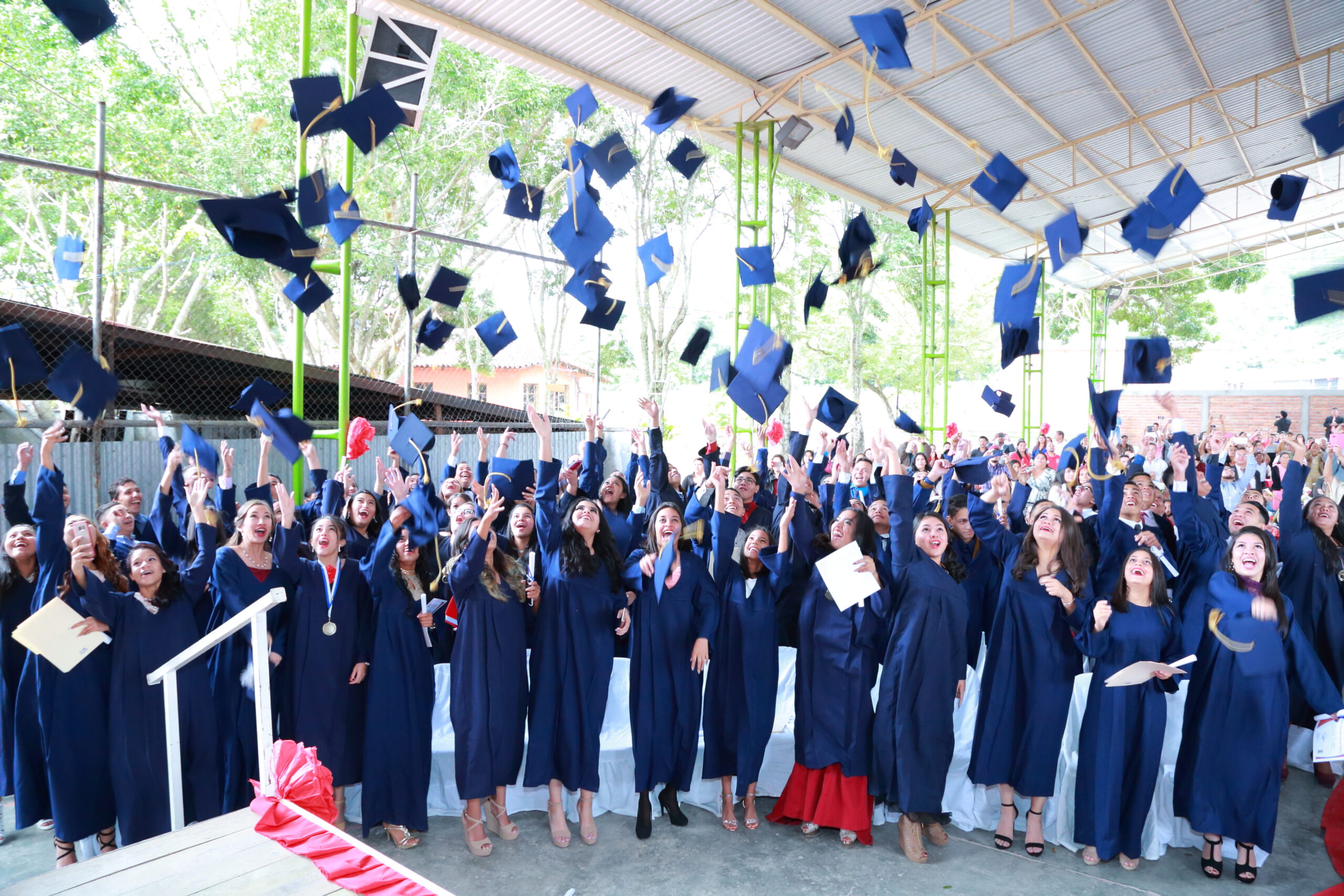
“At the beginning of the school year, many new students have a negative attitude. Thanks to our support programs, consisting of discussions, school camps and meetings, we can often reach improvement. Many former students continue to visit us and are grateful for the positive turn in their life we gave them. We are able to help these young people to improve, thanks to the financial support of our many sponsors and donors.”
Martha, School Director
“In our Kindergarten, the kids first and foremost learn the foundations of English and Spanish. But they are also taught Mathematics, Music, Physical Education, Handicrafts, or how to use a computer.”
“All students of the Middle School participate in the general assembly. Primarily class delegates, who are elected by their classmates at the beginning of each year, are the ones who speak.
At the assemblies, on the one hand, we discuss problems and petitions of the students and try to find possible solutions. On the other hand, it is important that young people learn to speak in public and articulate their needs.”
“The Psychology Department is responsible for the Middle School as well as for the Elementary School. We help the students in case of emotional difficulties or problems concerning their behavior or their studies. There are a great number of family problems that lead to problematic behavior in children and teenagers.
We have already been able to achieve some very good results. At the Elementary School, for example, we had some children showing behavior disorders who were able to attain positive results with our intervention.”
Bani, Social Worker
